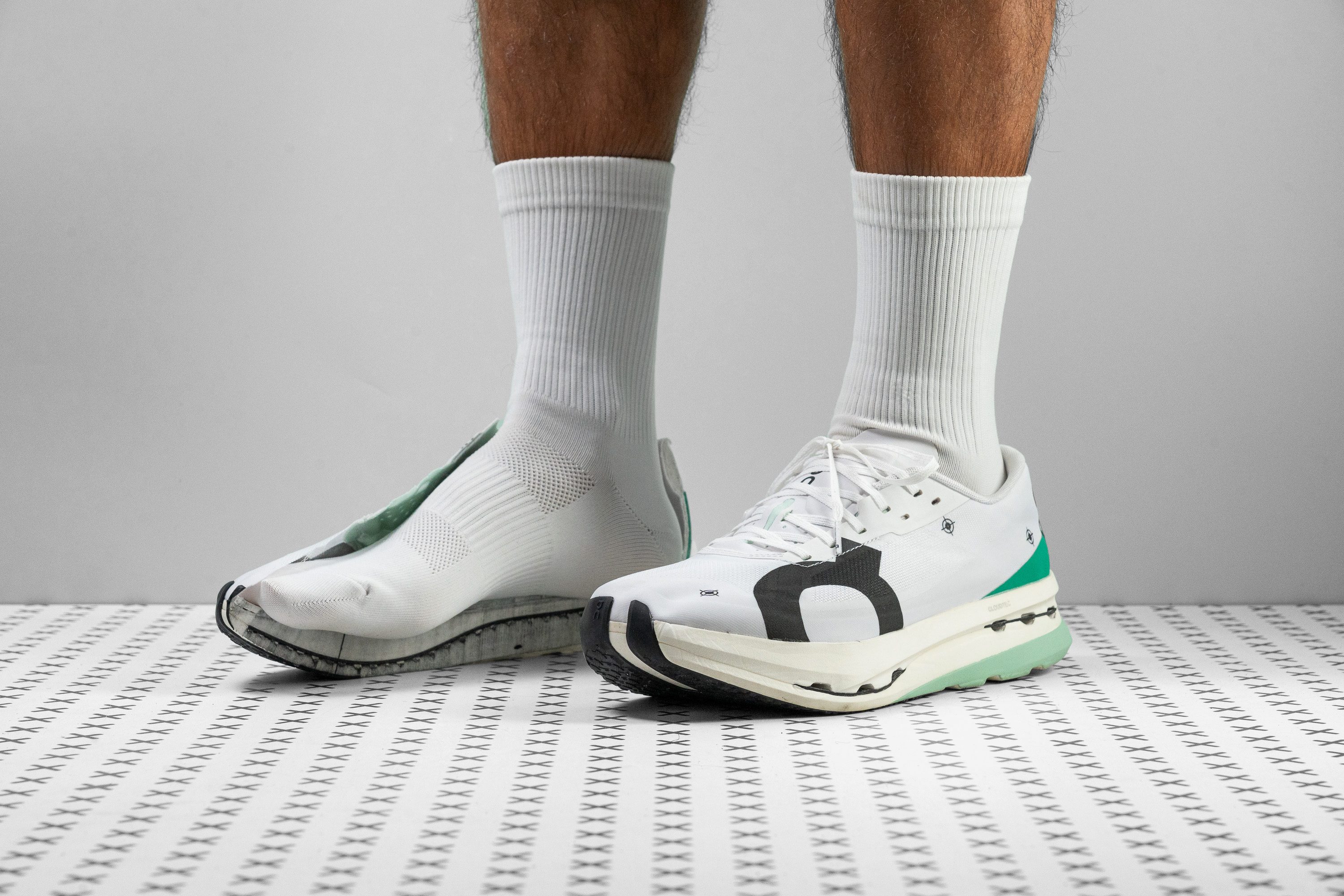Our verdict
Pros
- Well-cushioned for marathon distances
- High-energy return from Pebax foam
- Offers a responsive and bouncy ride
- Exceptionally breathable upper
- Excellent for 5K and 10K runs
- Semi-gusseted tongue
- A wonder for those with narrow feet
- Made from premium-quality materials
Cons
- Exorbitantly high price
- Likely too narrow for most runners
- Weight leans toward the heavier side
- Bad traction for a supershoe
Audience verdict
- Top 20% in road running shoes
- Top 19% in On running shoes
Comparison
The most similar running shoes compared
+ + Add a shoe | |||||
|---|---|---|---|---|---|
| Audience score | 90 Superb! | 90 Superb! | 90 Superb! | 88 Great! | |
| Price | £290 | £260 | £195 | £230 | |
| Pace | Competition | Competition | CompetitionTempo | Competition | |
| Shock absorption | High | High | High | High | |
| Energy return | High | High | High | High | |
| Traction | Moderate | High | High | High | |
| Arch support | Neutral | Neutral | Neutral | Neutral | |
| Weight lab Weight brand | 7.9 oz / 225g 7.5 oz / 212g | 6.5 oz / 183g 6.4 oz / 181g | 7.2 oz / 204g 7.4 oz / 209g | 7.8 oz / 220g 7.7 oz / 218g | |
| Lightweight | ✓ | ✓ | ✓ | ✓ | |
| Drop lab Drop brand | 10.2 mm 9.0 mm | 6.5 mm 5.0 mm | 10.6 mm 8.0 mm | 9.5 mm 8.0 mm | |
| Strike pattern | Heel | Mid/forefoot | Heel | HeelMid/forefoot | |
| Size | True to size | Slightly small | True to size | True to size | |
| Midsole softness | Balanced | Balanced | Soft | Balanced | |
| Difference in midsole softness in cold | Small | Small | Normal | Small | |
| Toebox durability | Decent | Good | Bad | Good | |
| Heel padding durability | Decent | Good | Good | Good | |
| Outsole durability | Decent | Good | Decent | Good | |
| Breathability | Breathable | Breathable | Moderate | Breathable | |
| Width / fit | Narrow | Narrow | Medium | Medium | |
| Toebox width | Narrow | Medium | Narrow | Medium | |
| Stiffness | Stiff | Stiff | Stiff | Stiff | |
| Torsional rigidity | Stiff | Stiff | Stiff | Stiff | |
| Heel counter stiffness | Flexible | Flexible | Flexible | Flexible | |
| Plate | Carbon plate | Carbon plate | Carbon plate | Carbon plate | |
| Rocker | ✓ | ✓ | ✓ | ✓ | |
| Heel lab Heel brand | 38.6 mm 37.0 mm | 39.1 mm 39.5 mm | 39.2 mm 40.0 mm | 38.1 mm 40.0 mm | |
| Forefoot lab Forefoot brand | 28.4 mm 28.0 mm | 32.6 mm 34.5 mm | 28.6 mm 32.0 mm | 28.6 mm 32.0 mm | |
| Widths available | Normal | NormalWide | Normal | Normal | |
| Orthotic friendly | ✓ | ✓ | ✓ | ✓ | |
| Season | SummerAll seasons | SummerAll seasons | All seasons | SummerAll seasons | |
| Removable insole | ✓ | ✓ | ✓ | ✓ | |
| Ranking | #73 Top 20% | #78 Top 21% | #39 Top 11% | #139 Top 37% | |
| Popularity | #257 Bottom 32% | #154 Top 41% | #44 Top 12% | #42 Top 11% |
Who should buy
The Cloudboom Echo 3 gets our seal of approval for:
- Loyal On brand enthusiasts who've been eagerly awaiting the company's first true super shoe.
- Runners with very narrow feet, looking for a performance shoe that offers a perfectly snug fit and feel.
- Athletes in search of a high-drop marathon racer packed with world-class Pebax foam.
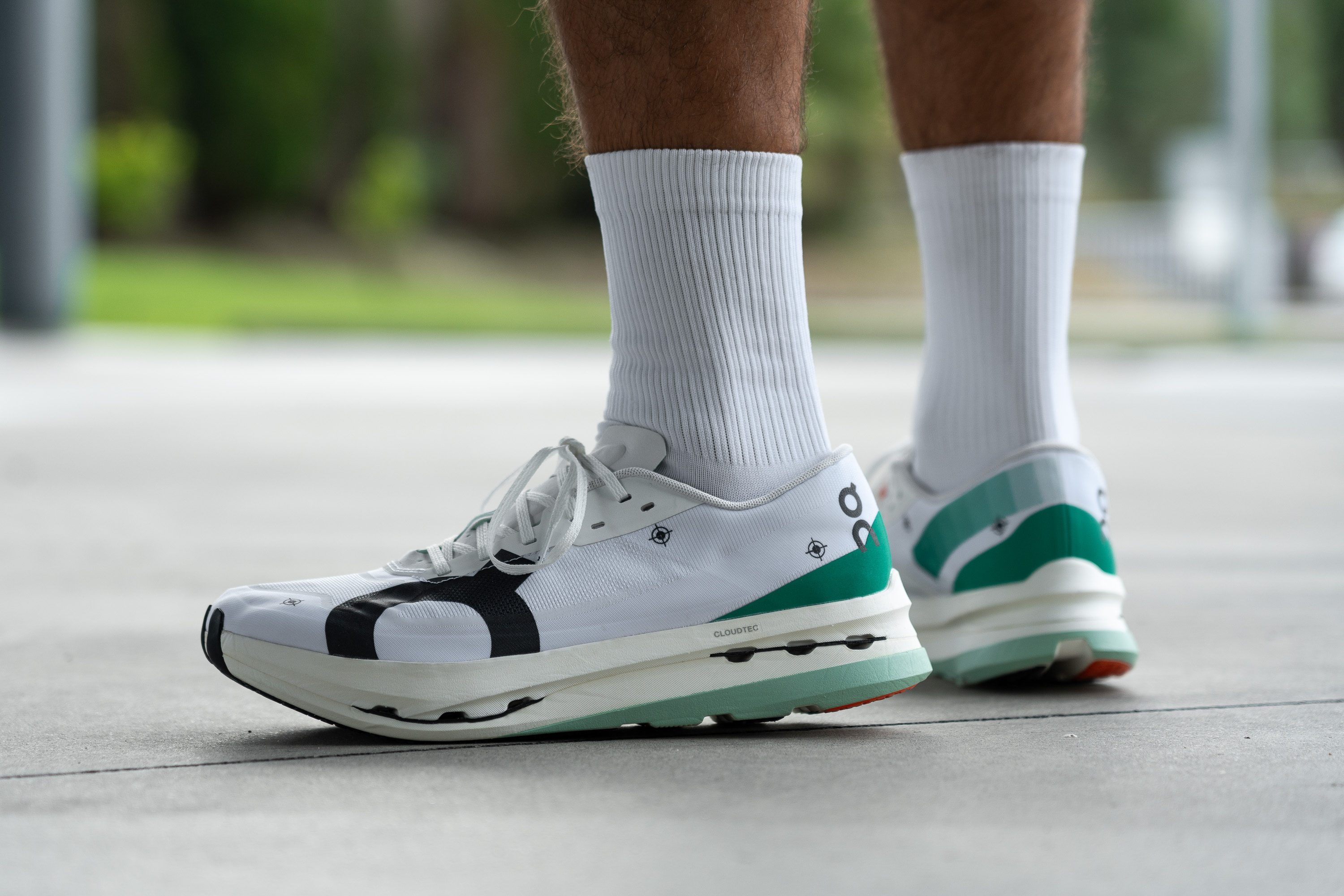
Who should NOT buy
If you're mindful of your budget, it's tough to endorse the Cloudboom Echo 3. Priced at £290, it doesn't bring any distinct benefits to the table when compared to other super shoes like the Hoka Rocket X 2 or the Nike Alphafly Next% 2. Notably, we found these alternatives offer greater durability and a roomy fit.
The Echo 3 also falls short for individuals with medium to wide feet due to its exceptionally narrow design. For a more spacious fit, you'd be better off considering the Adidas Adizero Adios Pro 3. It offers similar weight characteristics, but in our view, is far more accommodating and, at least, twice as durable.
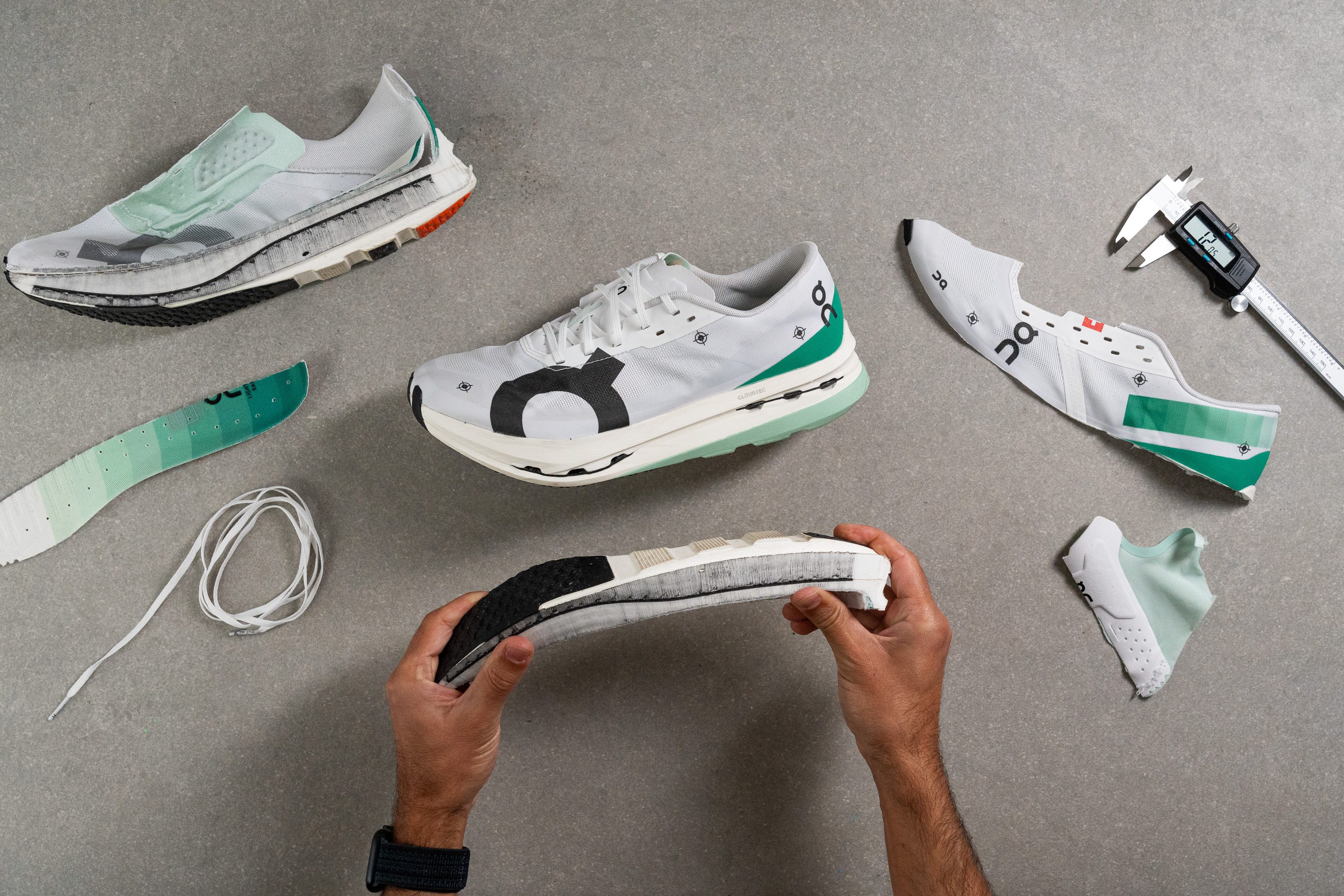
Cushioning
Shock absorption
We discovered that the Cloudboom Echo 3 delivers enough underfoot protection to handle gruelling long runs and marathon races, reaching up to 133 SA in our lab test.
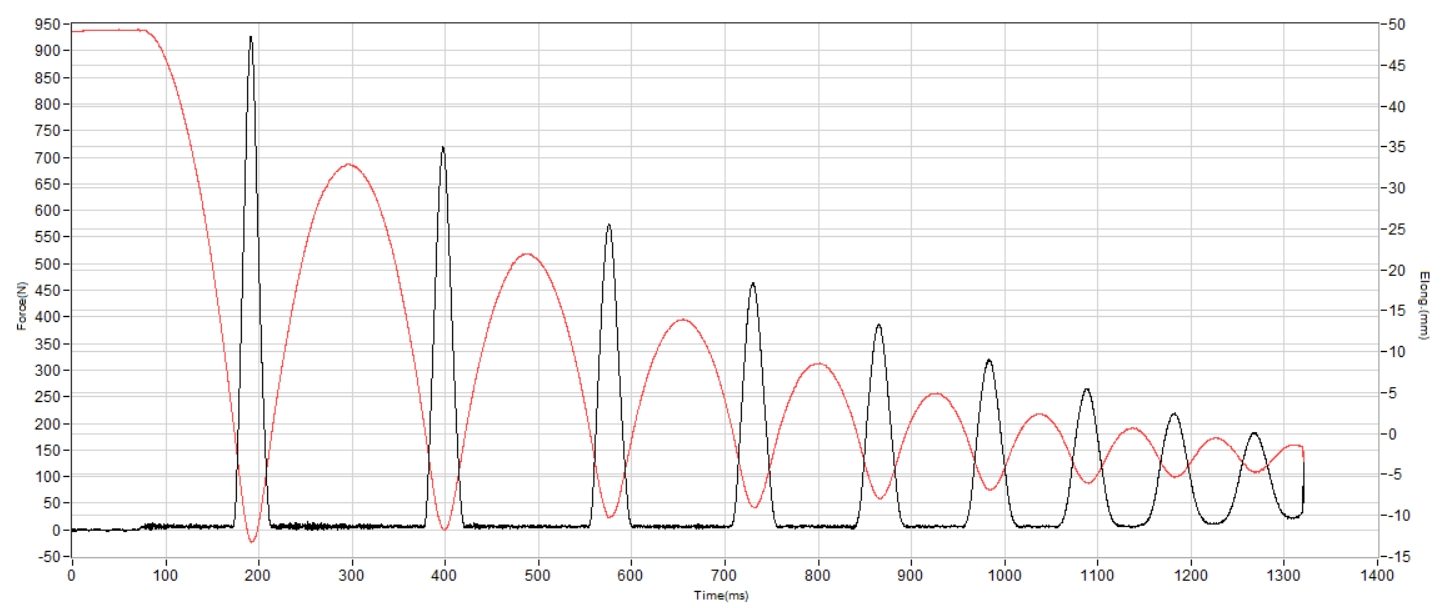
| Cloudboom Echo 3 | 133 SA |
| Average | 130 SA |
Energy return
As expected from a proper super shoe with a PEBA-based midsole, energy return is solid at 72.8%. That’s a world-class result and leaves little room for complaint, but marginal-gain seekers might prefer the Nike Vaporfly 4 or Adidas Adizero Adios Pro 4.
| Cloudboom Echo 3 | 72.8% |
| Average | 58.6% |
Heel stack
Probably, what most of you are keen to know is the stack height of the shoe.
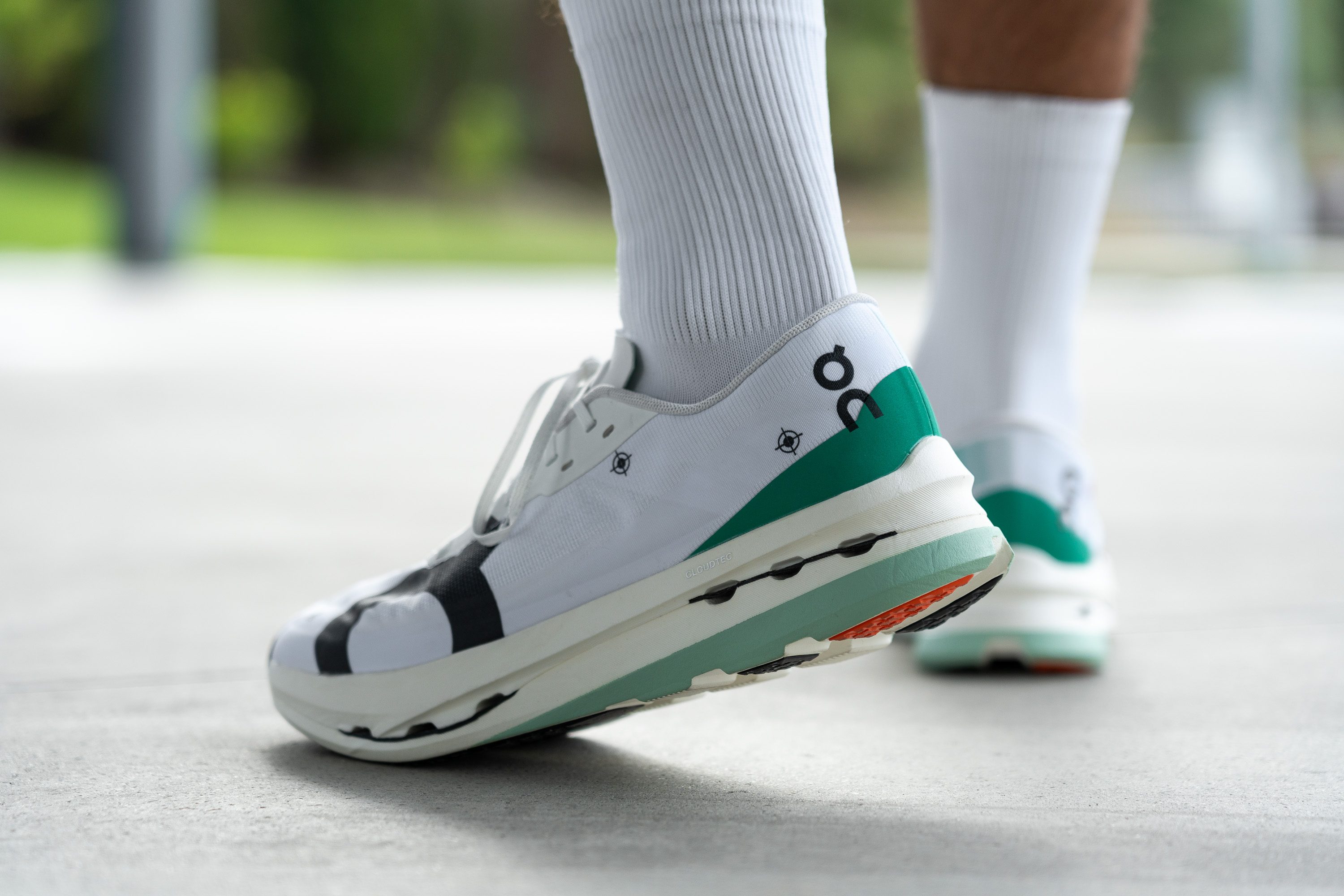
In the case of the On Cloudboom Echo 3, it boasts a significant 38.6 mm in the heel, which is just 1.4 mm below from the maximum limit set by World Athletics (40 mm). So yes, this one is race-day legal!
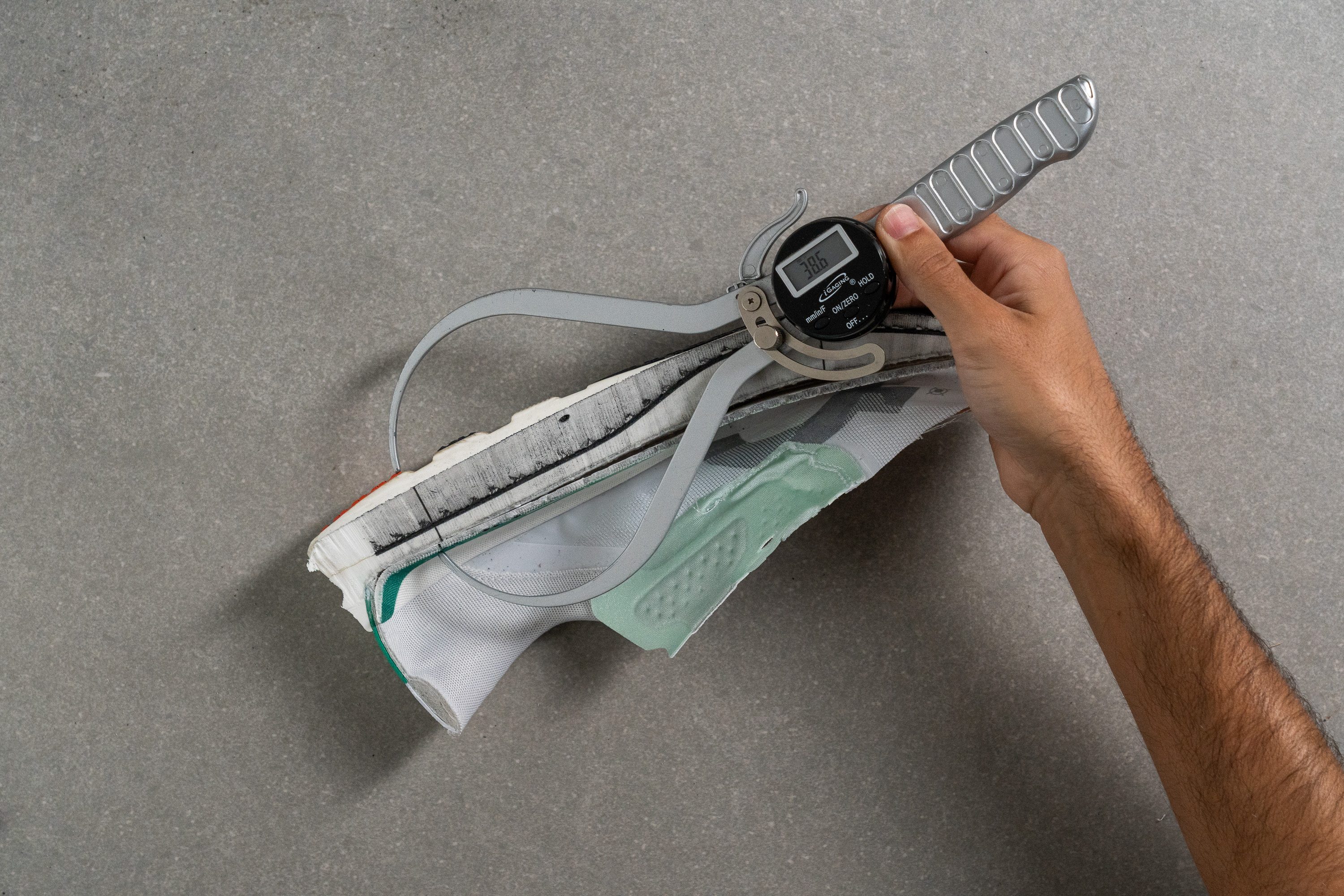
| Cloudboom Echo 3 | 38.6 mm |
| Average | 34.8 mm |
Forefoot stack
Next, we shifted our focus to the forefoot and took another measurement.
We gauged the stack height at this point to be 28.4 mm. It's pretty interesting to observe the spoon-like curve of the carbon plate, which is similar to what you'll find in the Nike Vaporfly Next% 2, although it can't be the same because Nike's design is patented.
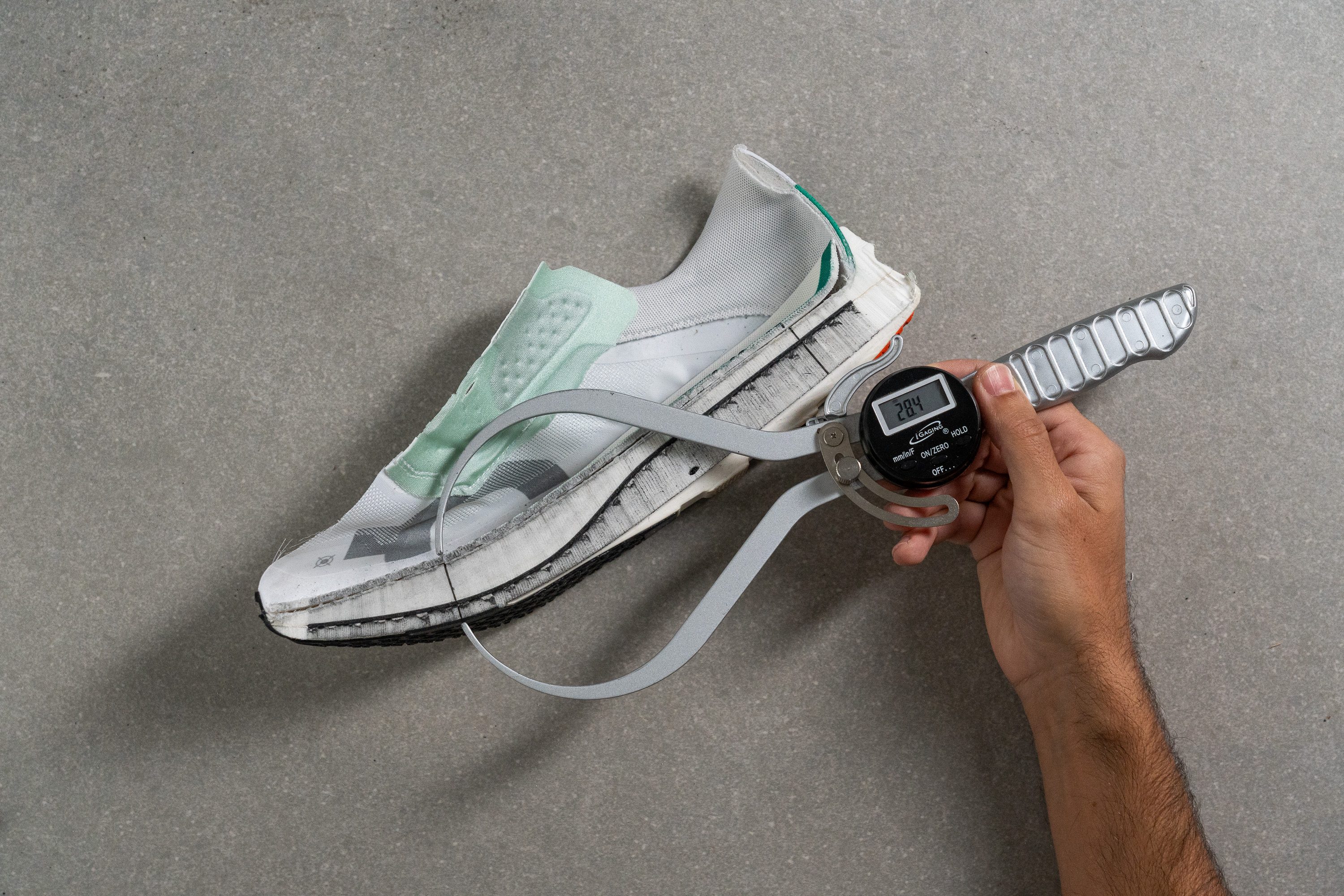
| Cloudboom Echo 3 | 28.4 mm |
| Average | 26.2 mm |
Drop
Racing shoes are generally trending towards lower heel-to-toe drops, like what you'll find in the ASICS Metaspeed Sky+. So it's quite intriguing to encounter a shoe with a much higher drop, like this one.
On advertises it as a shoe with a 9-mm drop, but we measured it at 10.2 mm, following official World Athletics guidelines.
This is especially good news for heel strikers who are looking for options with a higher heel-to-toe drop in a racing shoe. Up until now, the Adidas Adizero Adios Pro 2 (10.3 mm) was one of the few choices available. So for runners who prefer or require this type of shoe geometry, this option is really great.
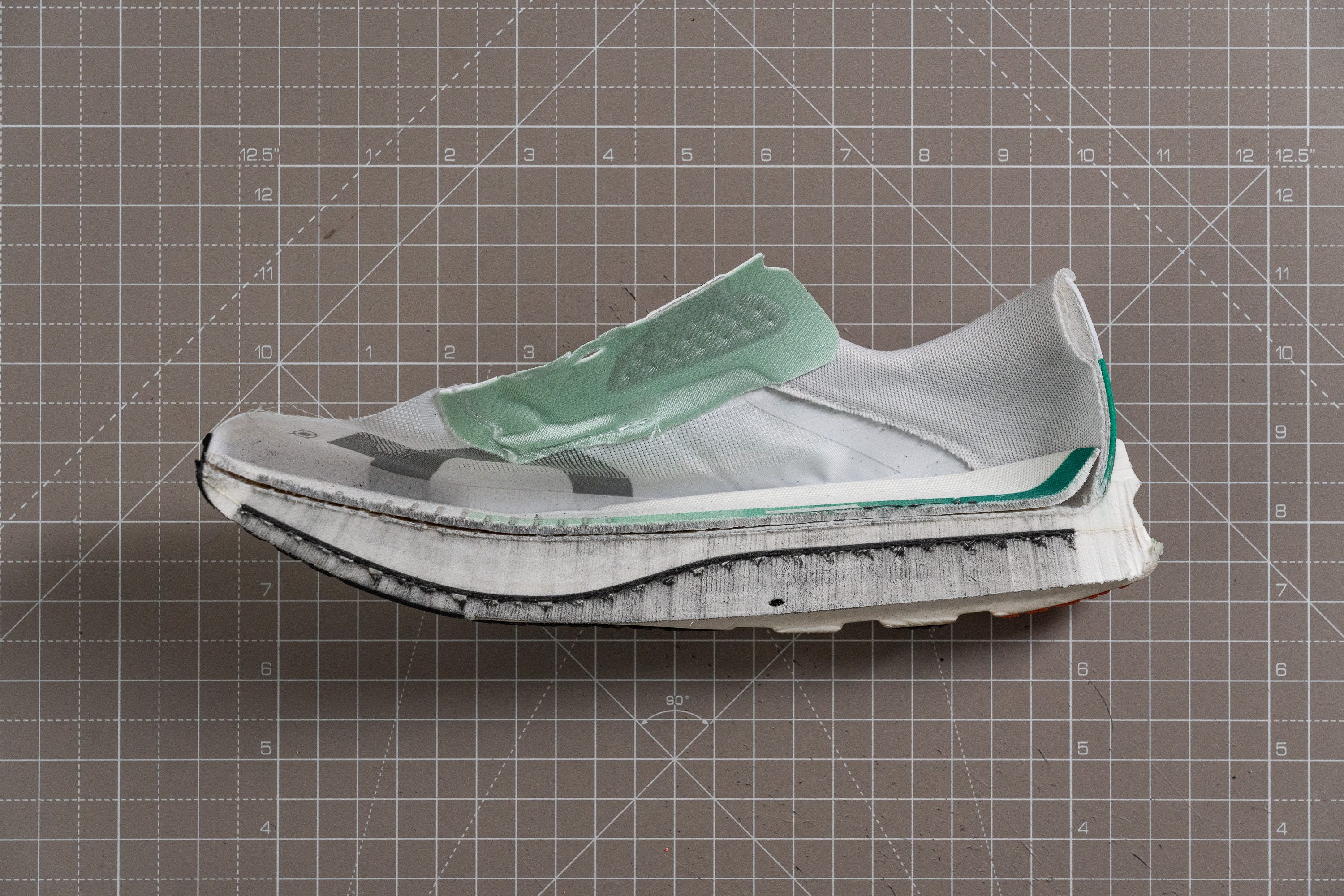
| Cloudboom Echo 3 | 10.2 mm |
| Average | 8.6 mm |
Midsole softness
Here comes the star of the show! After much anticipation, On has finally rolled out a marathon shoe featuring its all-new Helion HF Pebax-based foam, giving you the highest energy return currently available. No more EVA, and no more big clouds!
But don't expect a super-soft experience with this racer. We measured its hardness at 23.5 HA, which is on the firmer side.
So, if you're a fan of a more solid feel underfoot, this shoe is fantastic. On the other hand, if you're in search of something extra cushy, you might want to look at other options like the Saucony Endorphin Pro 3.
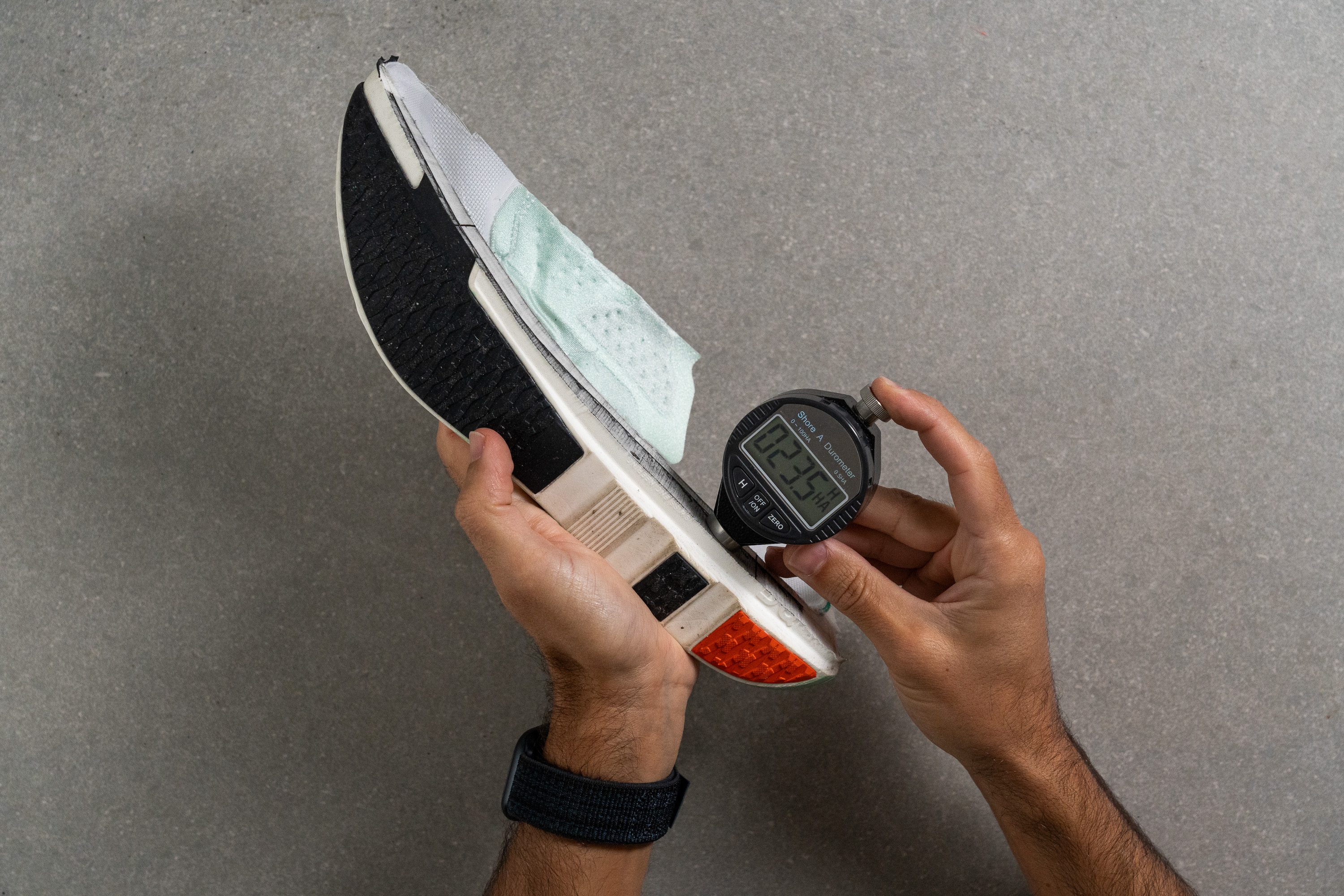
| Cloudboom Echo 3 | 23.5 HA |
| Average | 20.4 HA |
Size and fit
Size
On Cloudboom Echo 3 fits true to size (20 votes).
Internal length
| Cloudboom Echo 3 | 270.0 mm |
| Average | 269.4 mm |
Width / Fit
The slim design of the midsole hinted at a narrow upper, but we confirmed it with exact measurements.
Our tests revealed a width of 92.2 mm, solidifying our initial impression. This super shoe is decidedly not crafted for those with wide feet.
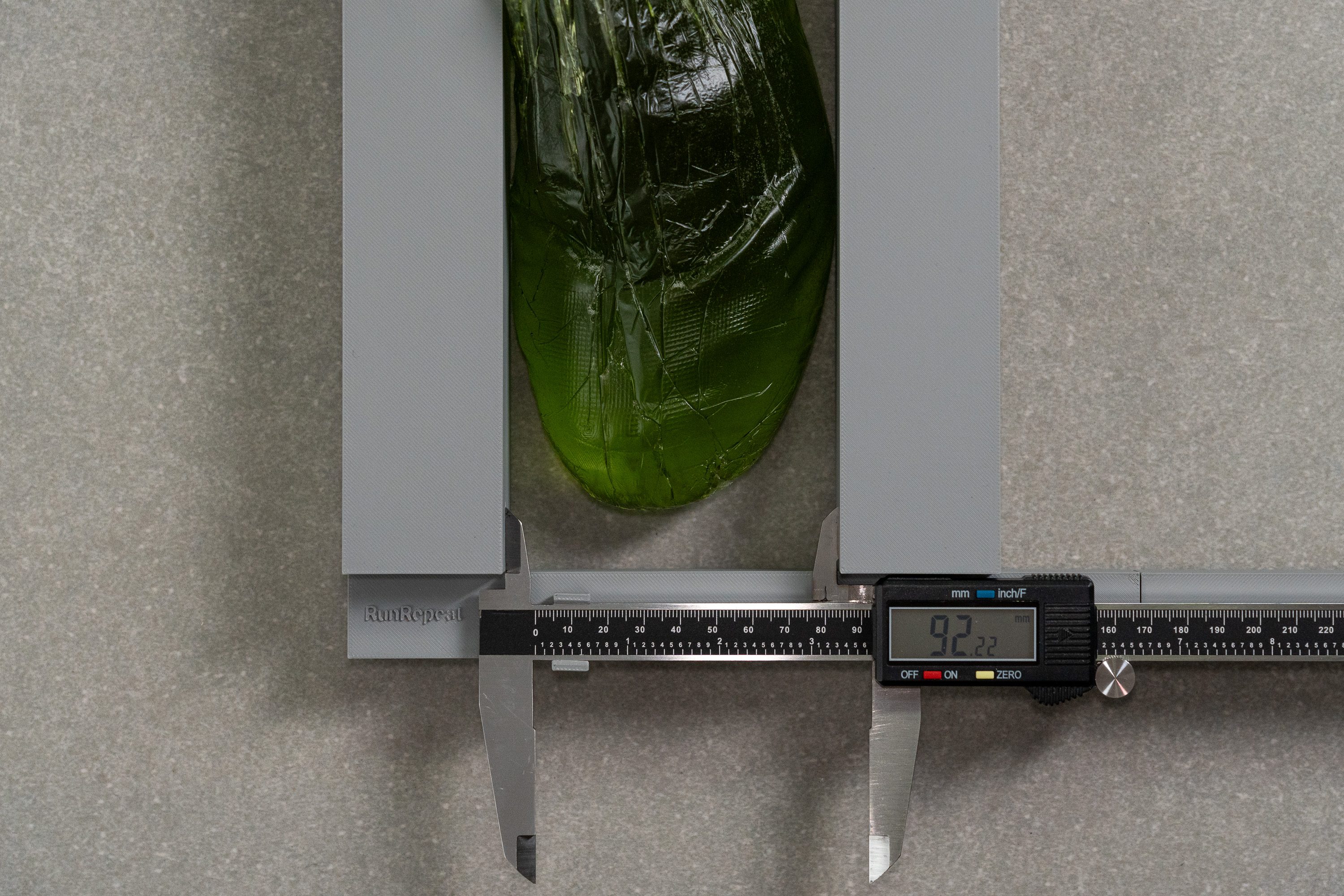
| Cloudboom Echo 3 | 92.2 mm |
| Average | 95.1 mm |
Toebox width
The same design trend applies to the big toe area, measuring just 70.4 mm wide. For anyone without narrow feet, this shoe is likely to cause issues especially during marathons. And we don't think that even going up a size would fix this problem.
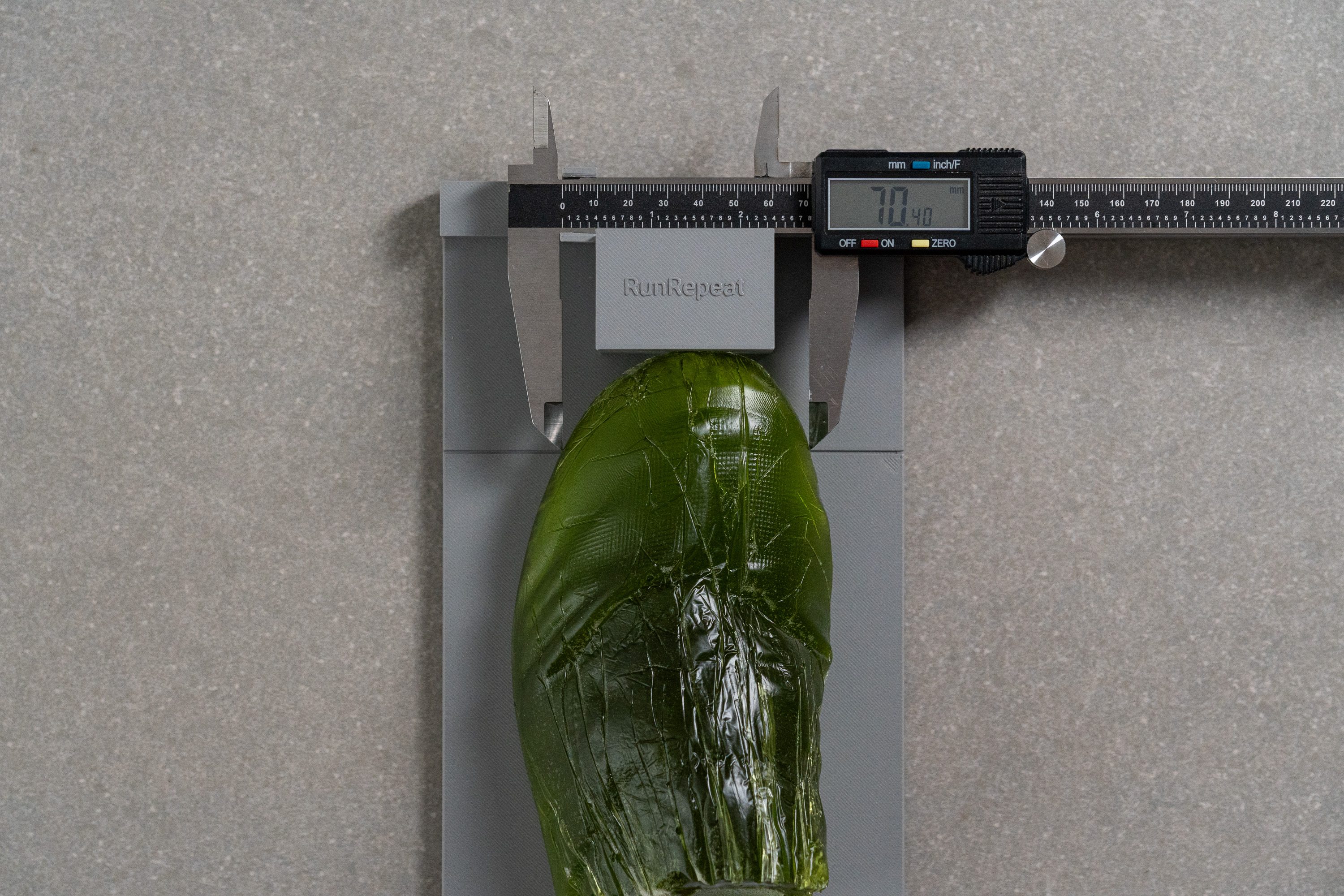
| Cloudboom Echo 3 | 70.4 mm |
| Average | 73.3 mm |
Toebox height
On the flip side, if toebox height is your concern, we measured a generous 27.0 mm—providing ample vertical space, making it well-suited even for long-distance races.
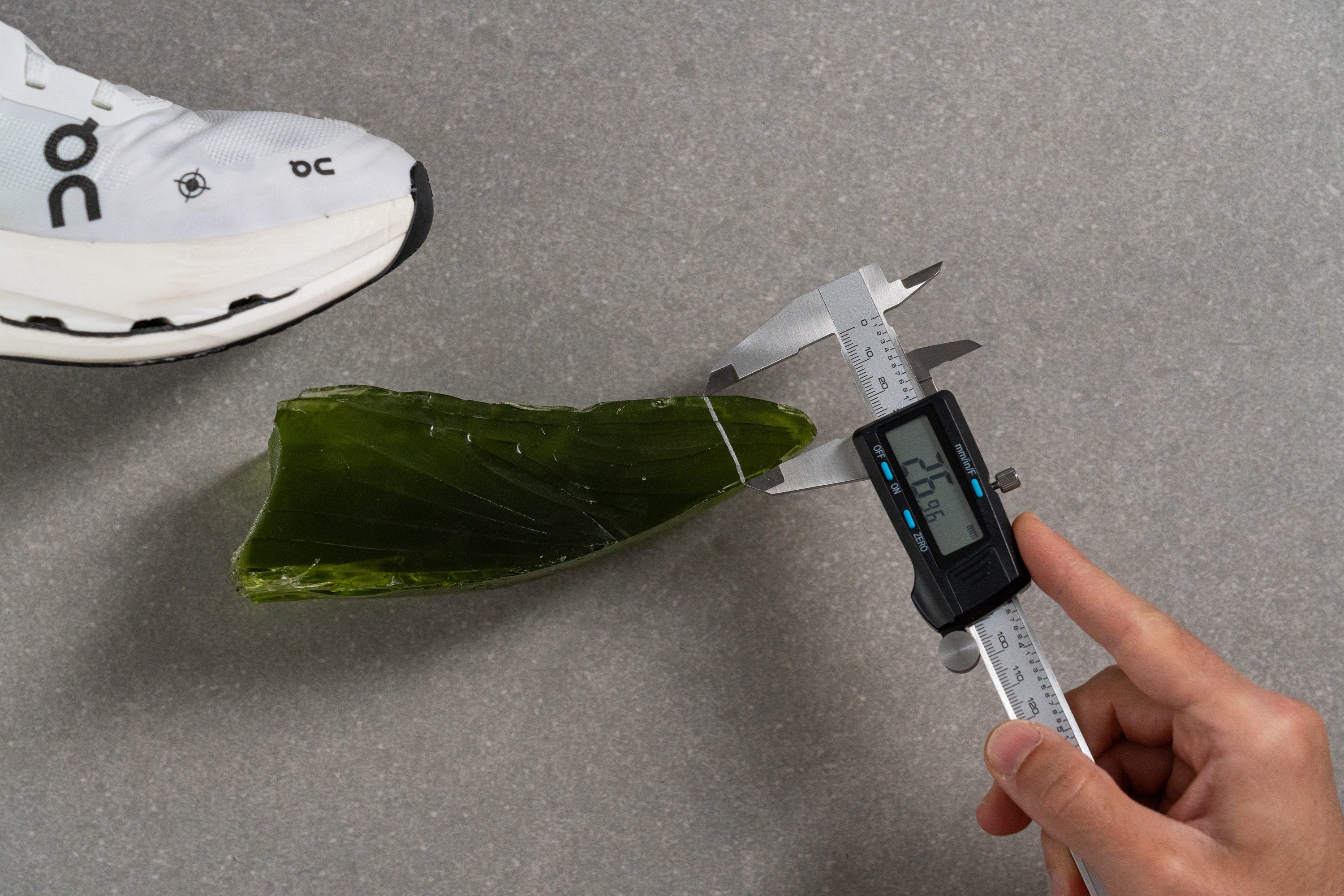
| Cloudboom Echo 3 | 27.0 mm |
| Average | 27.0 mm |
Traction / Grip
Traction test
The 0.38 score from our SATRA TM144 grip test confirms reliable traction in both dry and wet conditions. Still, for a high-priced super shoe, we expected a stronger outcome, like something more aligned with other premium-tier racers on the market.
| Cloudboom Echo 3 | 0.38 |
| Average | 0.49 |
Outsole design
A central channel splits the shoe into two distinct sides, supporting torsional mobility. Rubber coverage is partial, yet compared to most other super shoes, the Cloudboom Echo 3 features less exposed foam across the outsole.
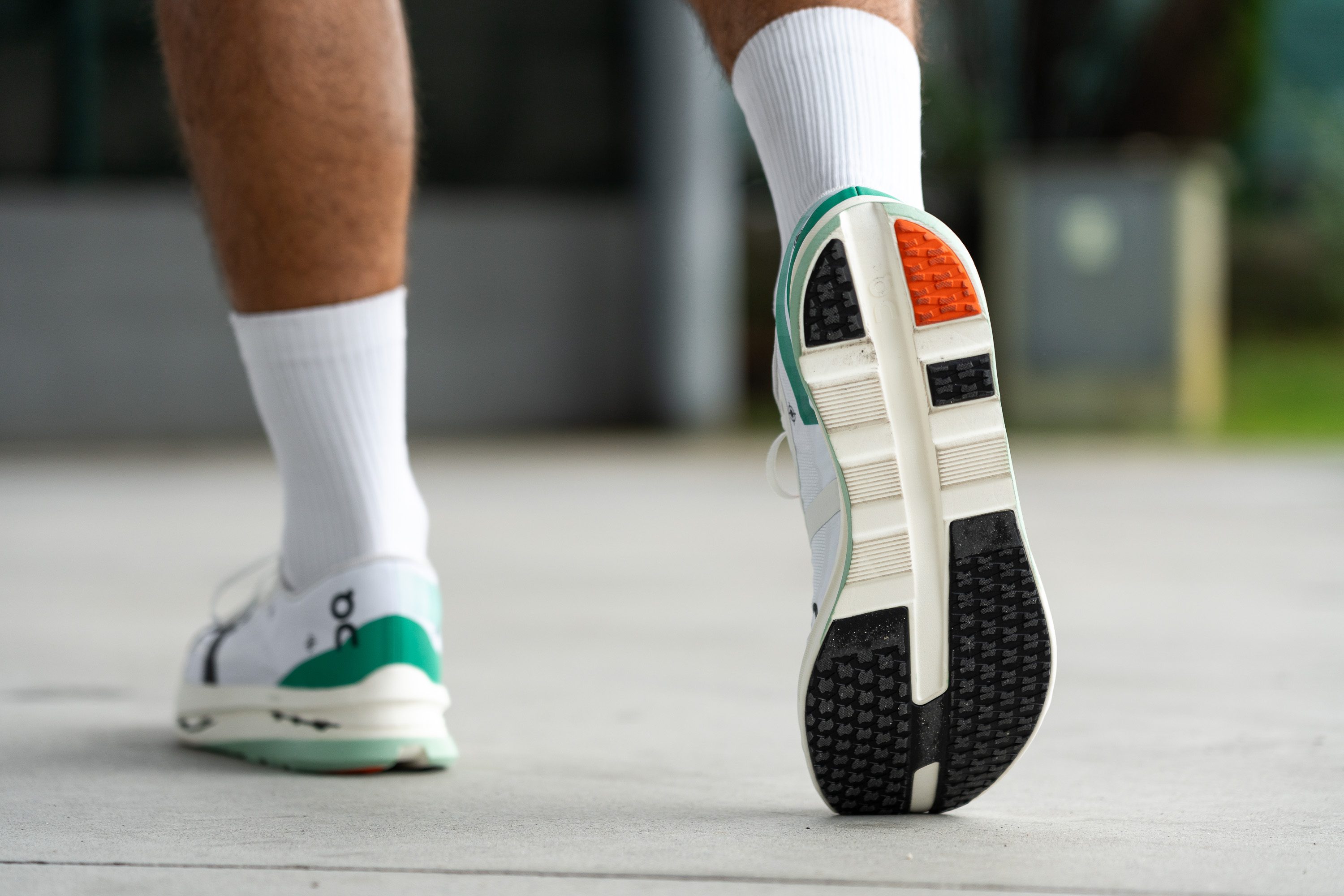
Flexibility / Stiffness
Shoes with carbon plates tend to resist bending, and we had to push our machine up to 22.0N in the 30-degree test. That's well within the super shoe range, confirming that this is indeed an ultra-stiff design.
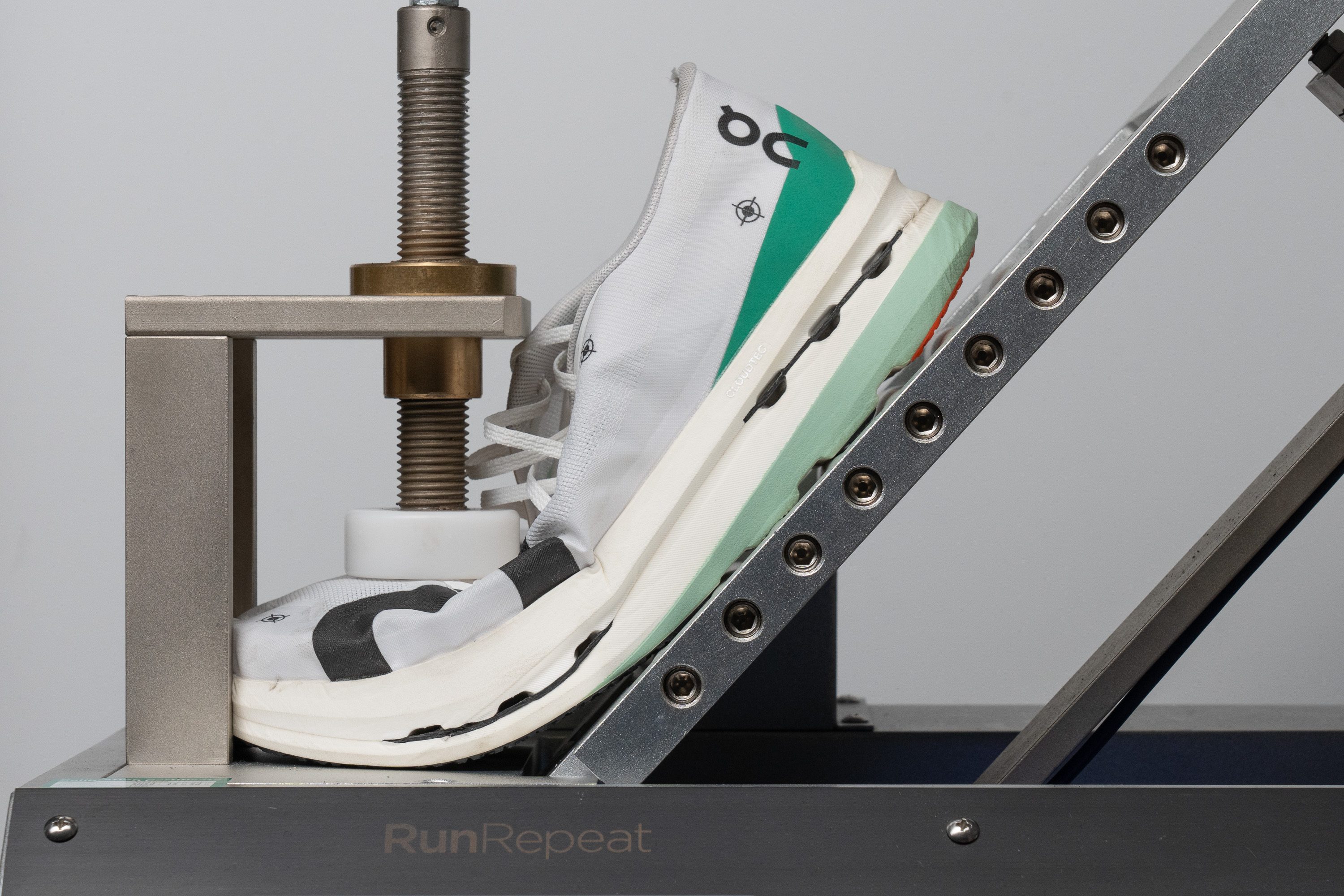
| Cloudboom Echo 3 | 22.0N |
| Average | 15.3N |
Stiffness in cold (%)
After another 20-minute siesta in the freezer, we ran the same test again. This time, we had to apply 57.1N of force to bend the shoe to the same measurement point.
This 17.8% increase is pretty amazing and just goes to show how awesome Pebax foams perform in cold weather. In comparison, the average EVA midsole's score would be at least twice as high.
| Cloudboom Echo 3 | 18% |
| Average | 33% |
Weight
Weighing in at 7.9 oz or 225g, the Cloudboom Echo 3 isn't exactly a featherweight among the so-called super shoes.
We think On really needs to step it up in the next version. Just by opting for a better rubber on the outsole, they could shave off as much as an ounce.
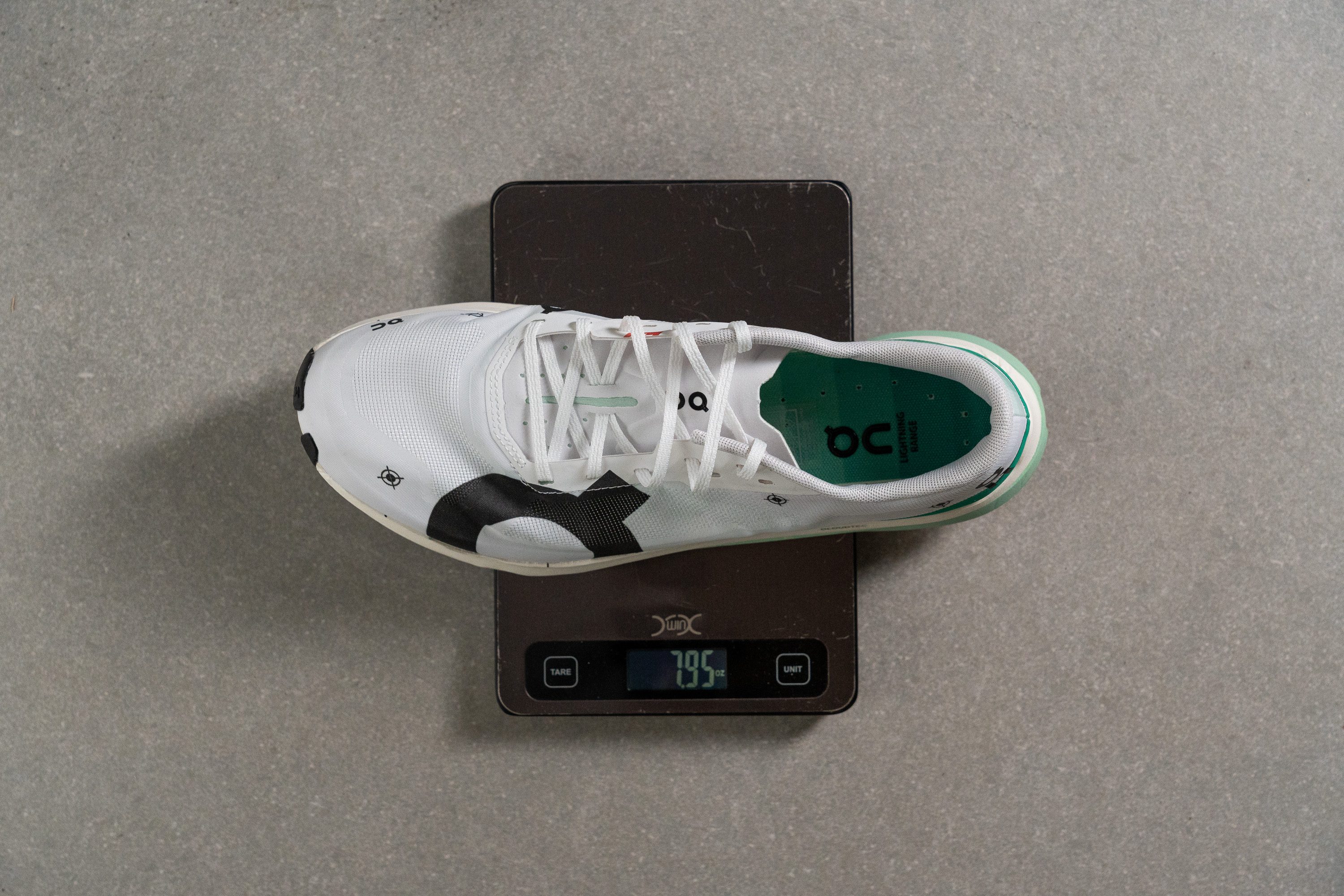
| Cloudboom Echo 3 | 7.9 oz (225g) |
| Average | 9.3 oz (264g) |
Breathability
When you're shelling out almost £300 for a racing shoe, you expect top-notch breathability, especially for those hot-weather races.
Fortunately, we found that On really delivered with the Cloudboom Echo 3—it scored a perfect 5/5 in our breathability test at the lab.
Our light test also revealed something crucial. We discovered that the airflow is not only great in the toebox but also in the midfoot.
This is a big deal for runners who sometimes have problems with the arches of their feet during hot races or long runs. Most other running shoes focus only on toebox ventilation.

We took a closer look with our microscope and observed that On developed a thin engineered mesh with micro-ventilation holes, instead of a denser material with larger holes. This choice should improve durability.
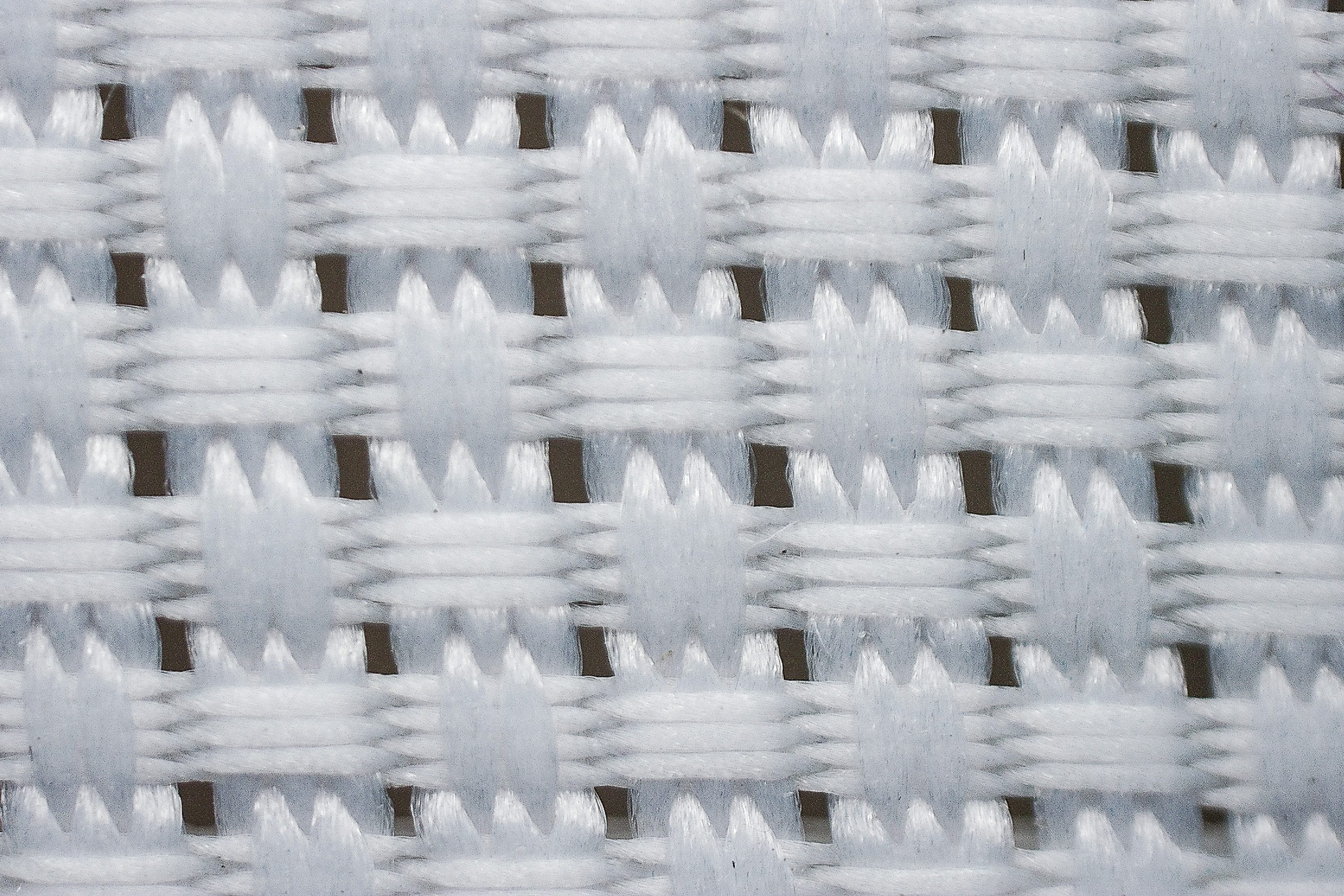
We also noticed that the upper of the shoe doesn't have any inner layer. Sure, this affects comfort a bit, but let's be honest, comfort isn't what we're seeking in a racing shoe. We're talking about a sports car here, not a luxury sedan!
| Cloudboom Echo 3 | 5 |
| Average | 3.7 |
Stability
Lateral stability test
When it comes to stability, don't get your hopes up. This is a racing shoe that doesn't offer much in that department, except for the carbon plate.
If you're a neutral runner, you'll likely feel comfortable in these. But if you have issues with pronation or supination, you might want to look at a different type of shoe, like the ASICS Superblast.
Torsional rigidity
With an extremely rigid carbon plate, we fully expected a perfect score of 5/5 in this test, and that's exactly what the Cloudboom Echo 3 gave us. It took a lot of force for us to twist it.
| Cloudboom Echo 3 | 5 |
| Average | 3.5 |
Heel counter stiffness
The heel counter is somewhat structured, which is uncommon for racing shoes.
This makes it a solid pick for folks who need extra heel support. After our tests, we gave it a 2/5.
| Cloudboom Echo 3 | 2 |
| Average | 2.9 |
Midsole width - forefoot
The first thing that really catched our attention when we picked up the Echo 3 was its narrow design. Even the forefoot, which is typically wider in racing shoes, measures only 107.0 mm.
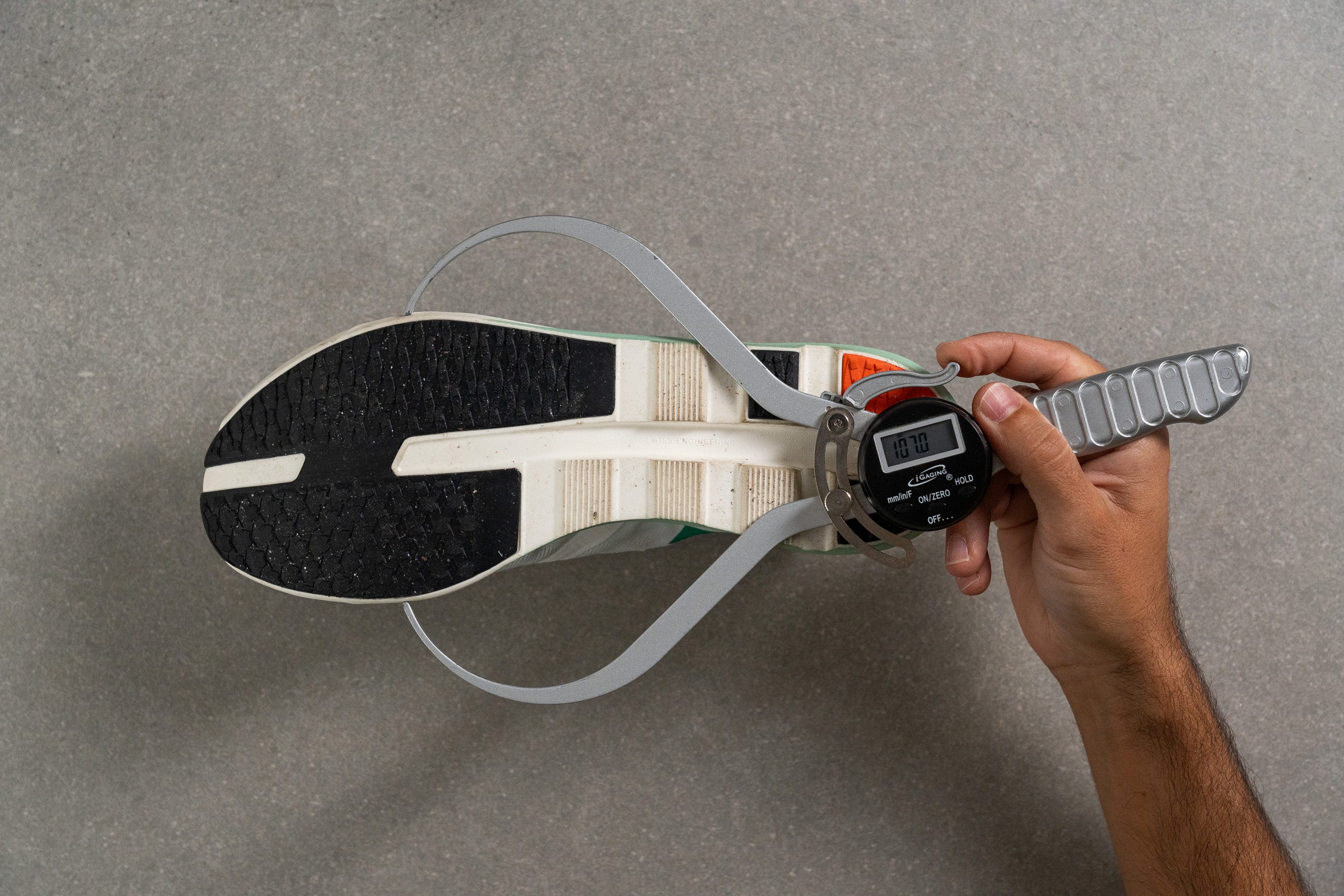
| Cloudboom Echo 3 | 107.0 mm |
| Average | 114.4 mm |
Midsole width - heel
What's truly astonishing is the heel width. Measuring just 78.1 mm, this shoe is virtually off-limits for heel strikers with stability issues.
We suspect that On initially intended for this shoe to be wider but had to slim down the design to keep the weight low.
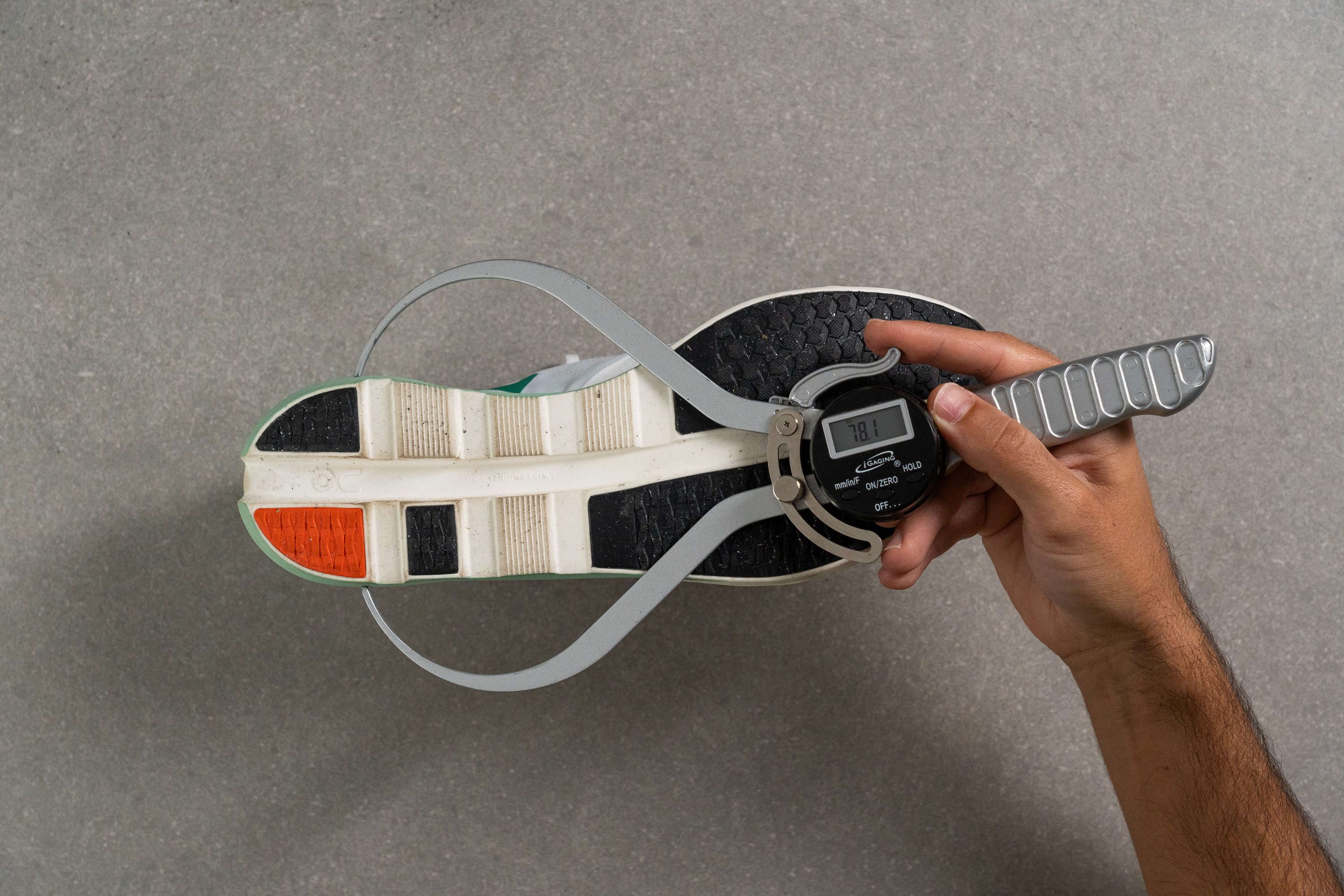
| Cloudboom Echo 3 | 78.1 mm |
| Average | 90.6 mm |
Durability
Toebox durability
We initially thought that the Cloudboom Echo 3 might not have great durability because of its thin, breathable mesh. But we at RunRepeat are all about testing shoes, not making guesses.
When we put the Cloudboom Echo 3 through its paces in a rigorous test against our Dremel, it turned in a good-enough performance!
You might think a score of 2/5 isn't great, but when you consider it in the context of all running shoes, it's actually a solid one. And given the shoe's excellent breathability, we think it's a truly commendable feat.
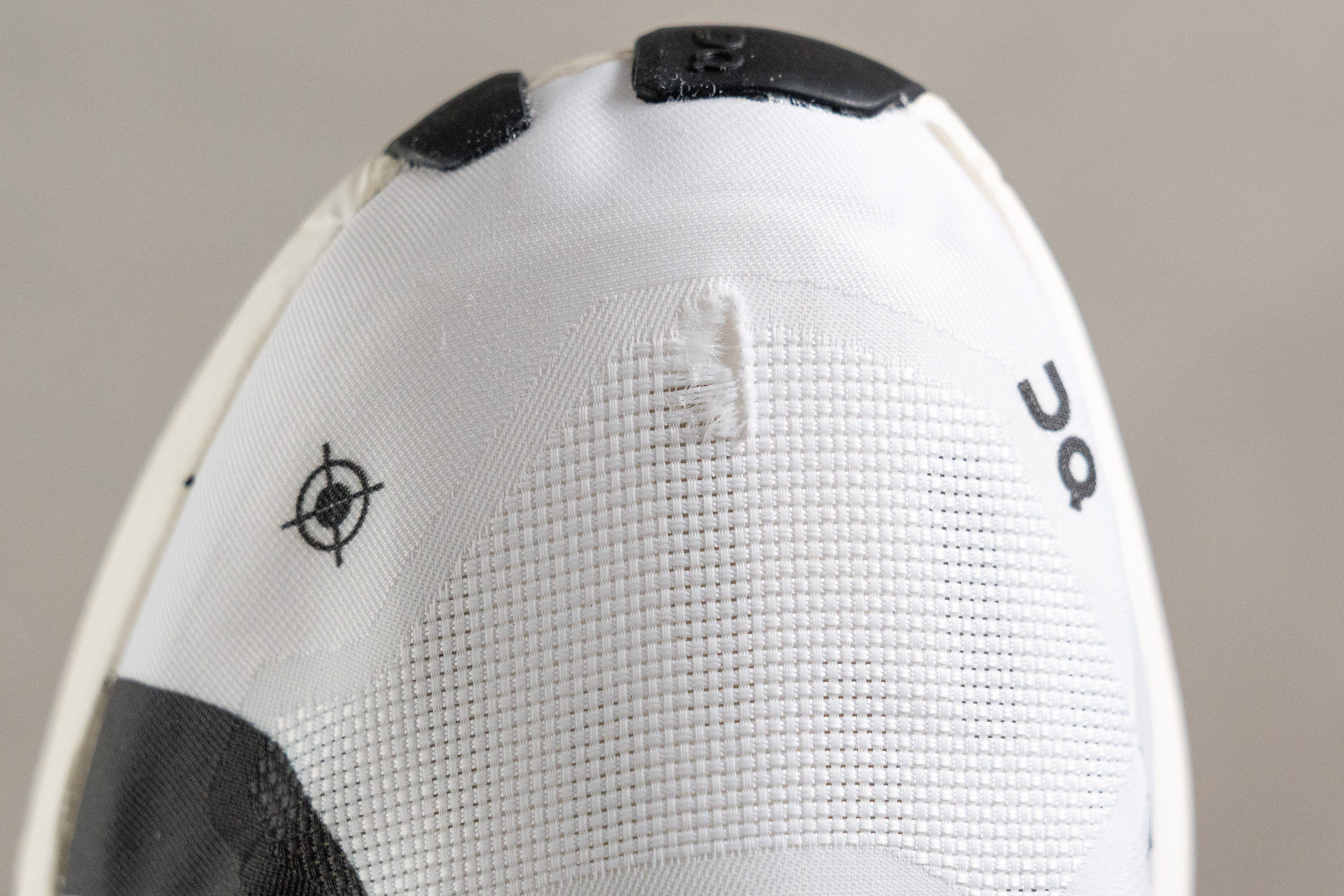
| Cloudboom Echo 3 | 2 |
| Average | 2.6 |
Heel padding durability
In most heel padding durability tests, competition shoes usually do well in, mainly because they often skimp on padding to save weight. But the Cloudboom Echo 3 broke that trend.
It ranks among the most comfortable marathon shoes we've evaluated, and it's this abundant heel padding that led to its below-average score. You just can't have it all!
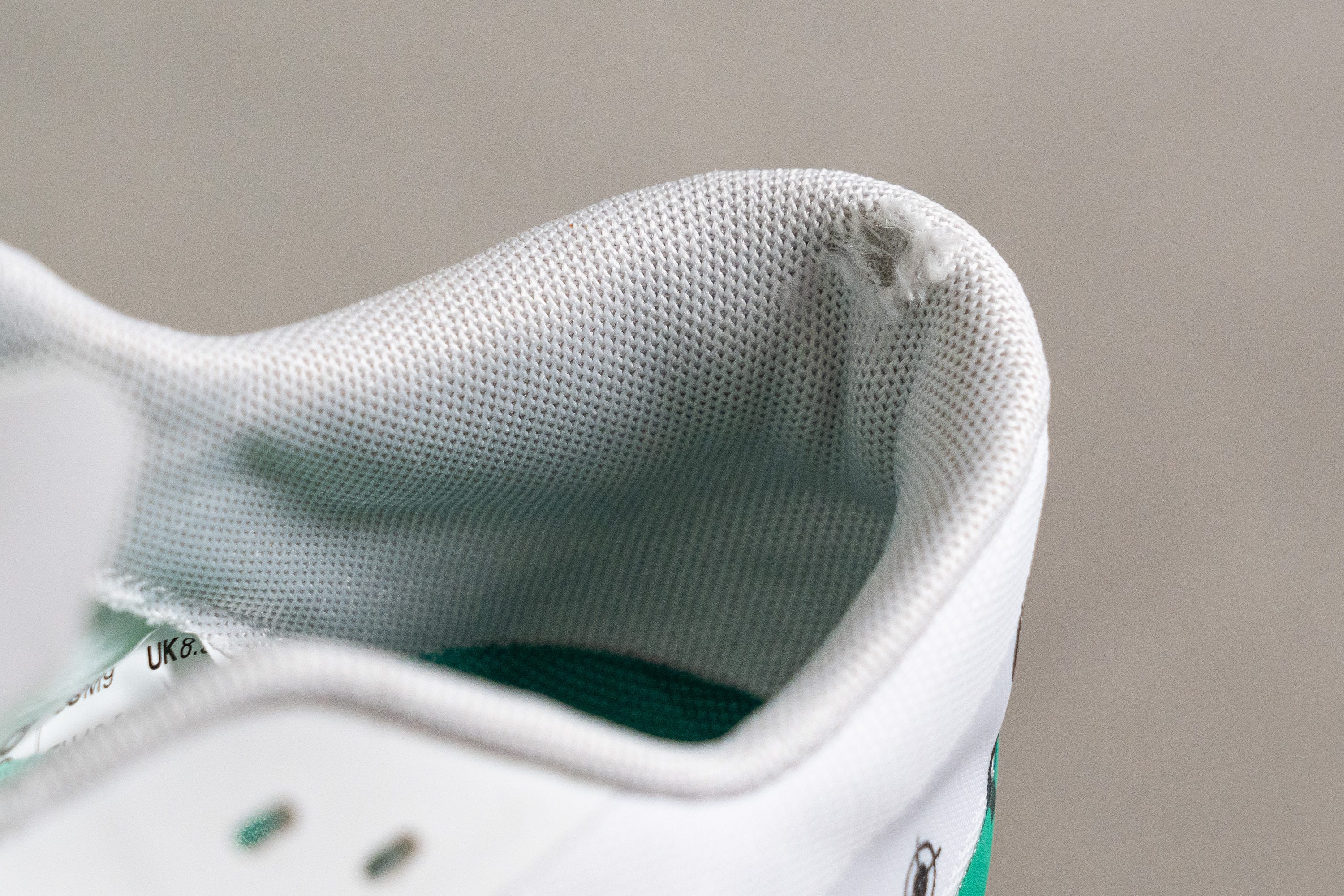
| Cloudboom Echo 3 | 2 |
| Average | 3.4 |
Outsole hardness
We next turned our attention to the outsole of the shoe, a critical area for many runners due to the quick wear and tear commonly seen in racing shoes.

We measured the rubber hardness of this shoe at 74.9 HC using our durometer. This score is below average for running shoes in general, but it's exceptionally high for a racing shoe.
A higher score indicates a harder material, which, theoretically, should offer less grip but more durability. So, does it live up to this expectation? We're about to find out...
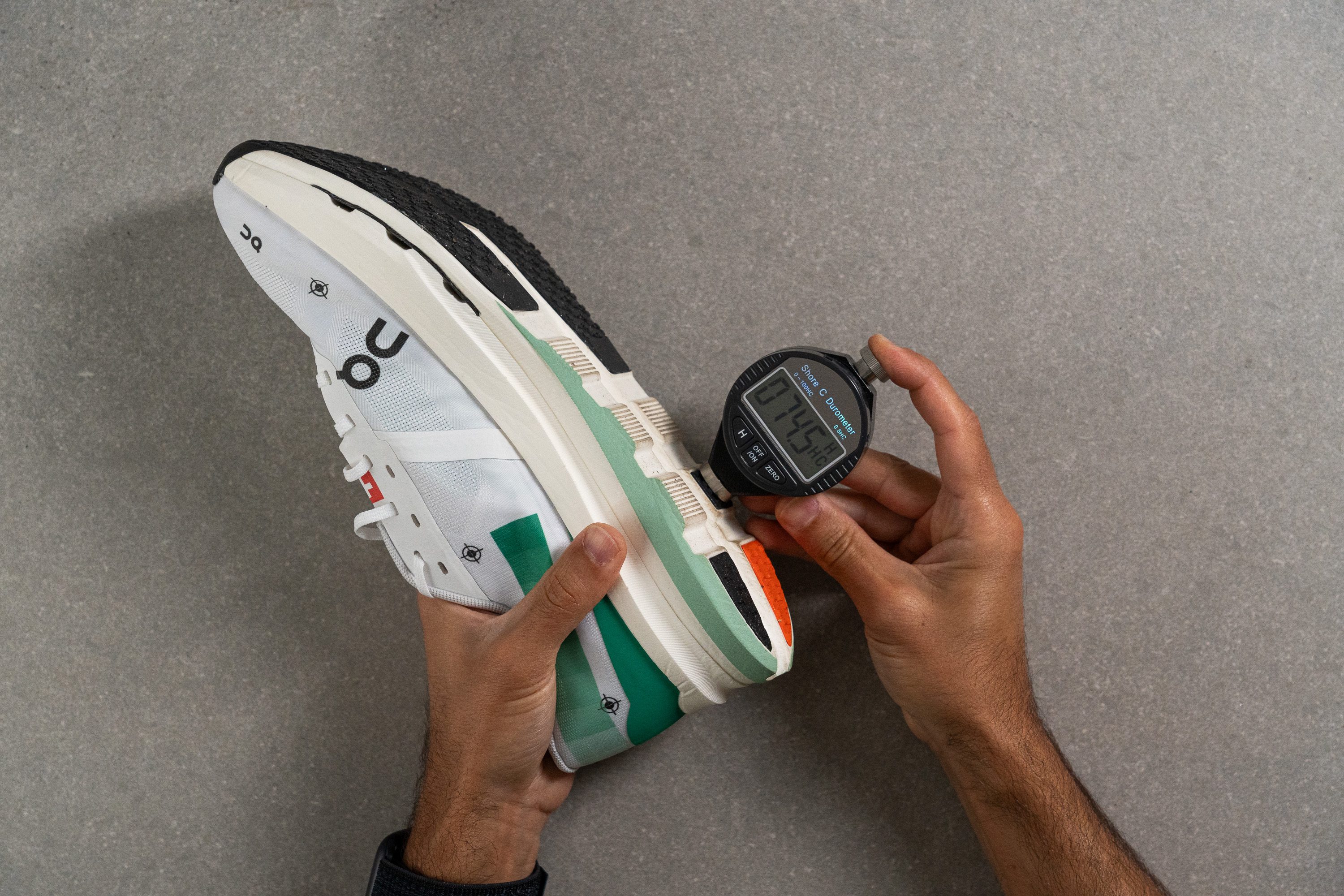
| Cloudboom Echo 3 | 74.9 HC |
| Average | 79.2 HC |
Outsole durability
We put the outsole through a rigorous test with the Dremel, and the On Cloudboom Echo 3 fell short of delivering a strong performance.
The shoe's box states "Lifespan = four marathons", and our test confirms this claim. However, given the hardness of the rubber, we were surprised to measure a significant 1.3-mm indentation, which is quite a lot.
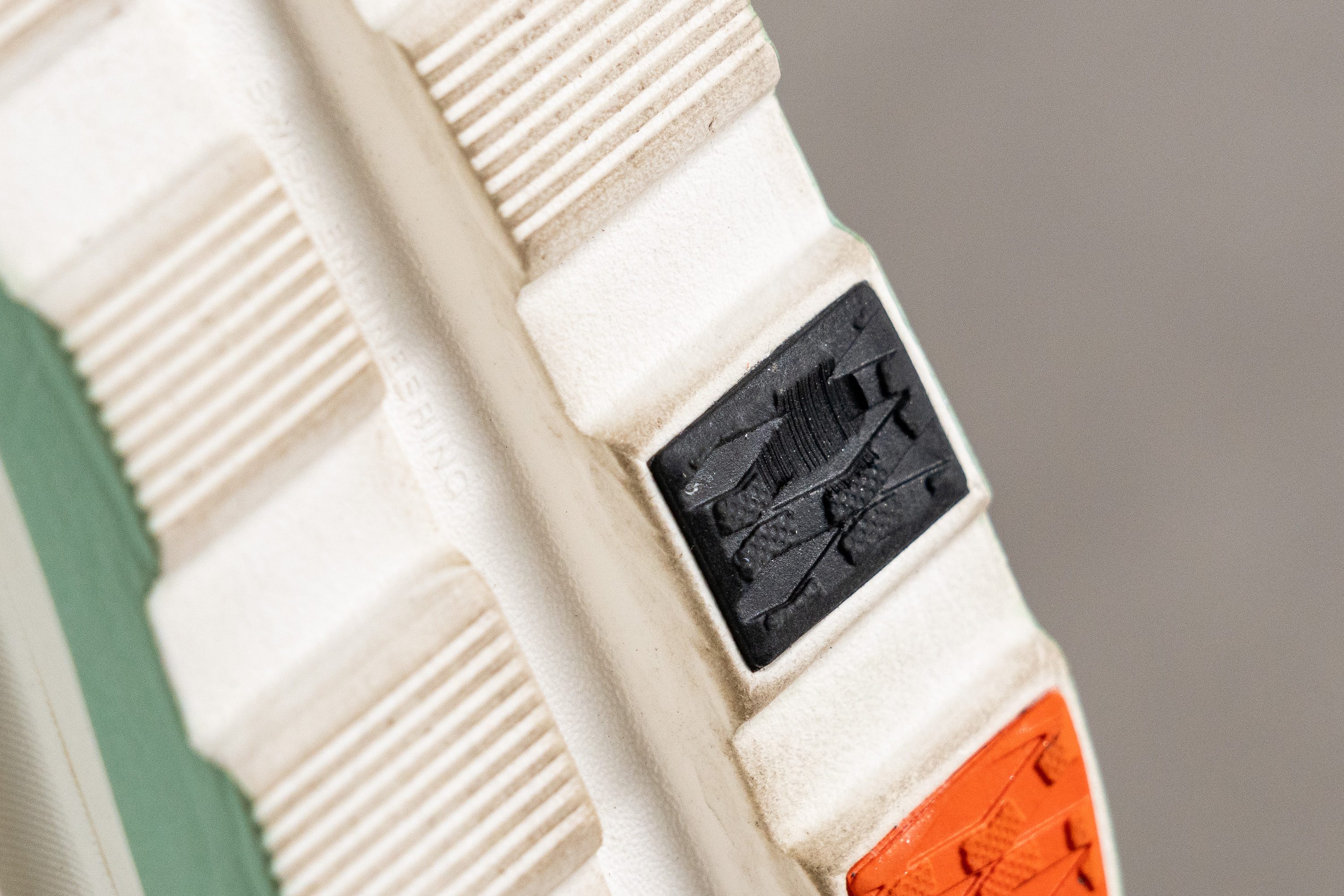
| Cloudboom Echo 3 | 1.3 mm |
| Average | 1.1 mm |
Outsole thickness
The outsole measures 2.4 mm, a thickness that adds extra weight and is unusually high for a racing shoe. However, this added thickness is essential for offsetting the shoe's lacklustre durability.
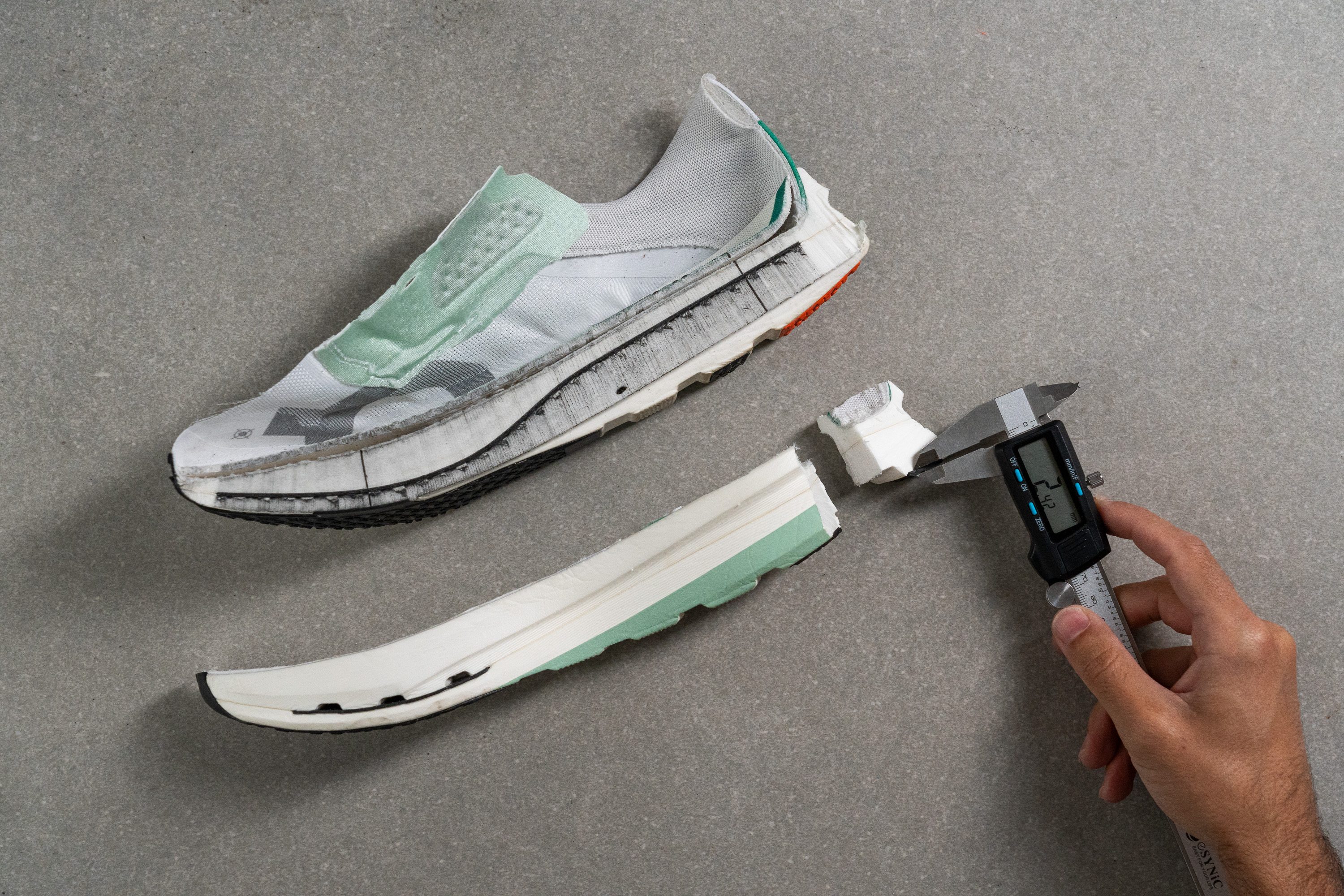
| Cloudboom Echo 3 | 2.4 mm |
| Average | 3.2 mm |
Misc
Insole thickness
The insole is just 2.9 mm thick, a smart choice in our opinion.
Why is that? Because using a thinner insole allows for more foam in the shoe while still meeting World Athletics guidelines!
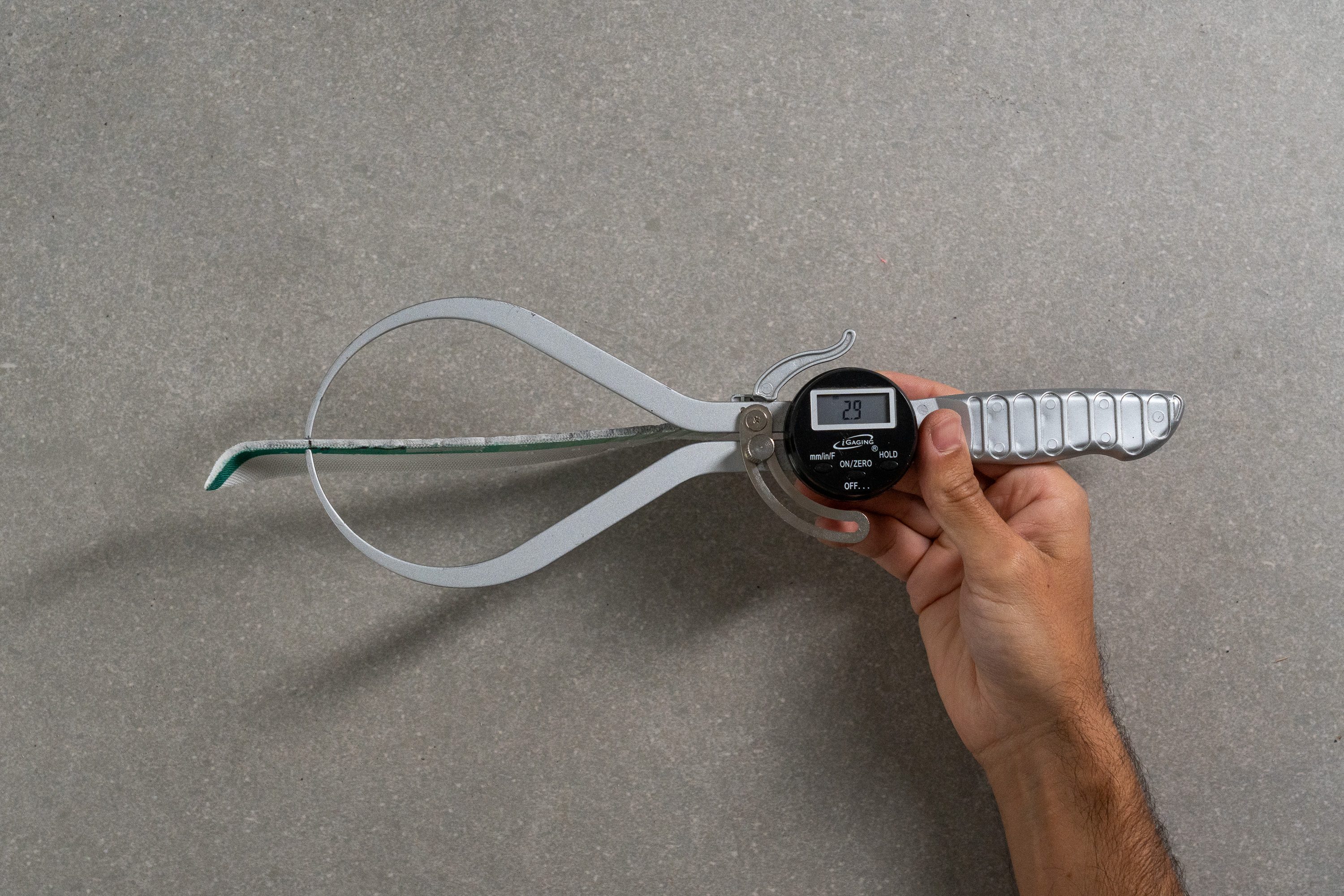
| Cloudboom Echo 3 | 2.9 mm |
| Average | 4.5 mm |
Removable insole
The insole isn't glued down, a definite plus. While some brands choose to glue the insole to prevent shifting, this design offers more flexibility, although you'll need custom orthotics—forget about OTC—given the narrow design of this shoe.
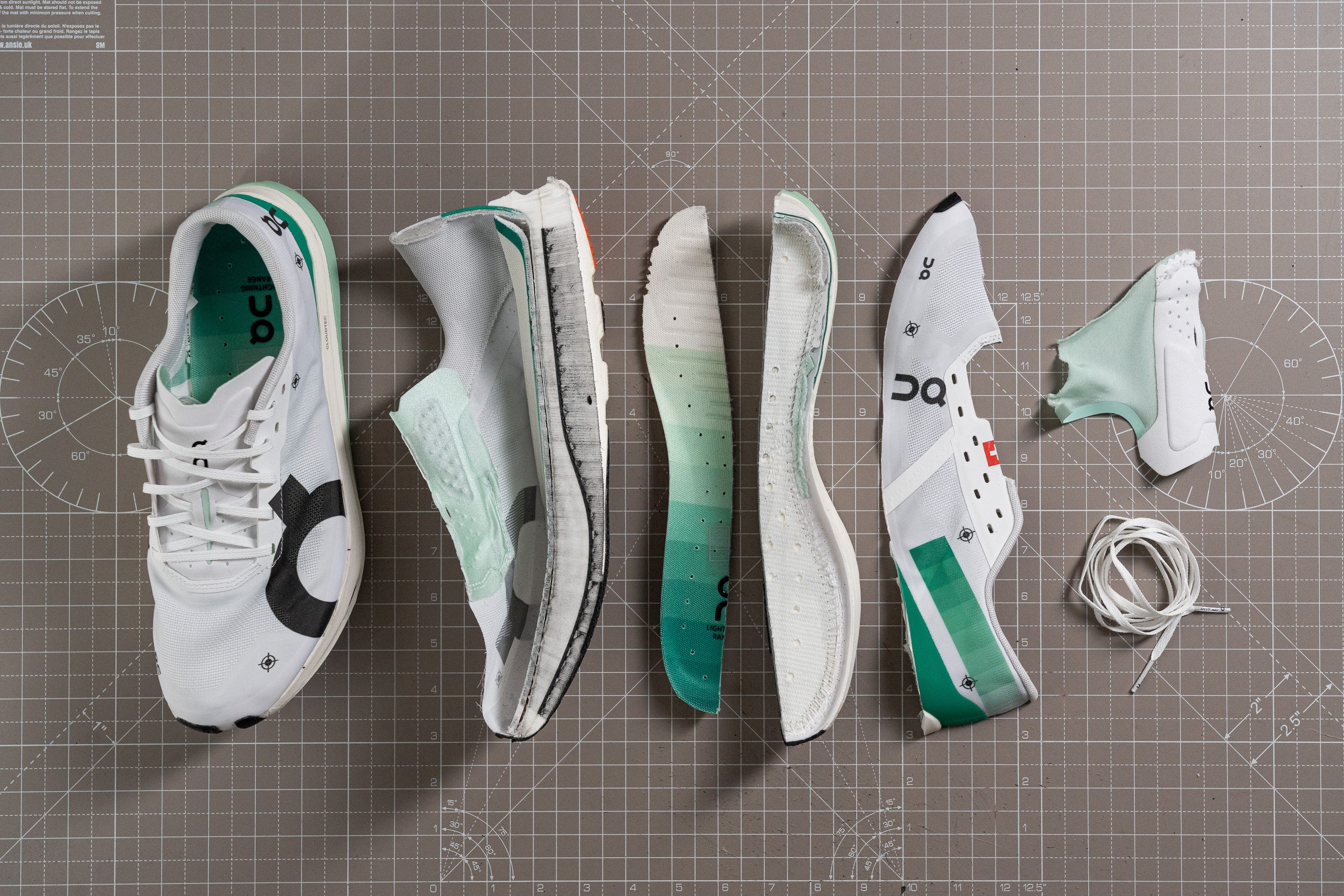
| Cloudboom Echo 3 | Yes |
Midsole softness in cold (%)
After chilling the shoe in the freezer for 20 minutes, we ran the softness test once more. This time, we observed a slightly higher reading of 25.6 HA.
This is an astonishingly low increase of just 8.9%, which is downright impressive compared to other running shoes.
However, it's not really a shocker for us. In our advanced guide in thos topic, we've already shared how amazing Pebax foams are, especially in cold weather.
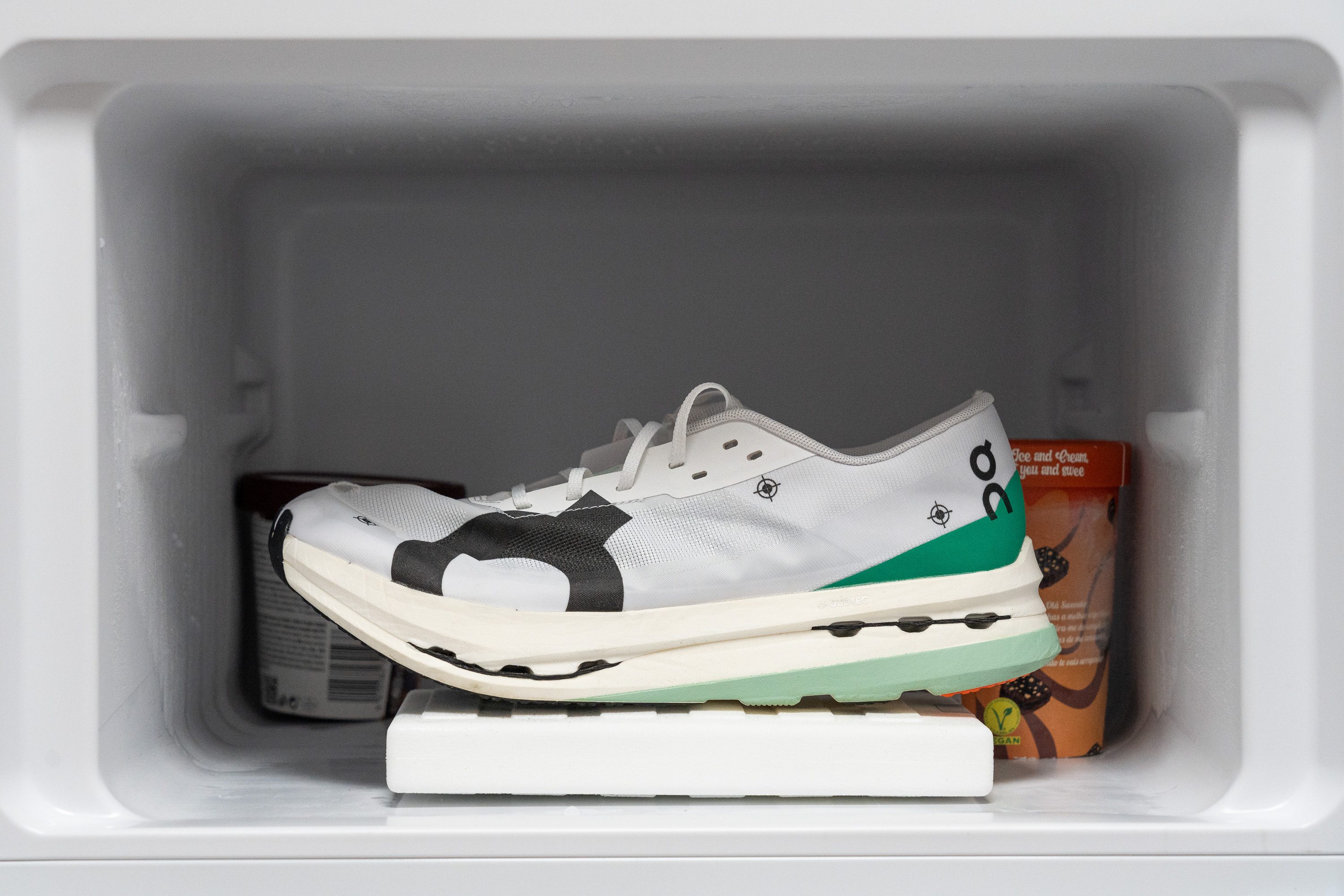
| Cloudboom Echo 3 | 9% |
| Average | 24% |
Reflective elements
The Echo 3 doesn't feature any reflective elements, but let's be honest—those are seldom missed in a racing shoe, aren't they?
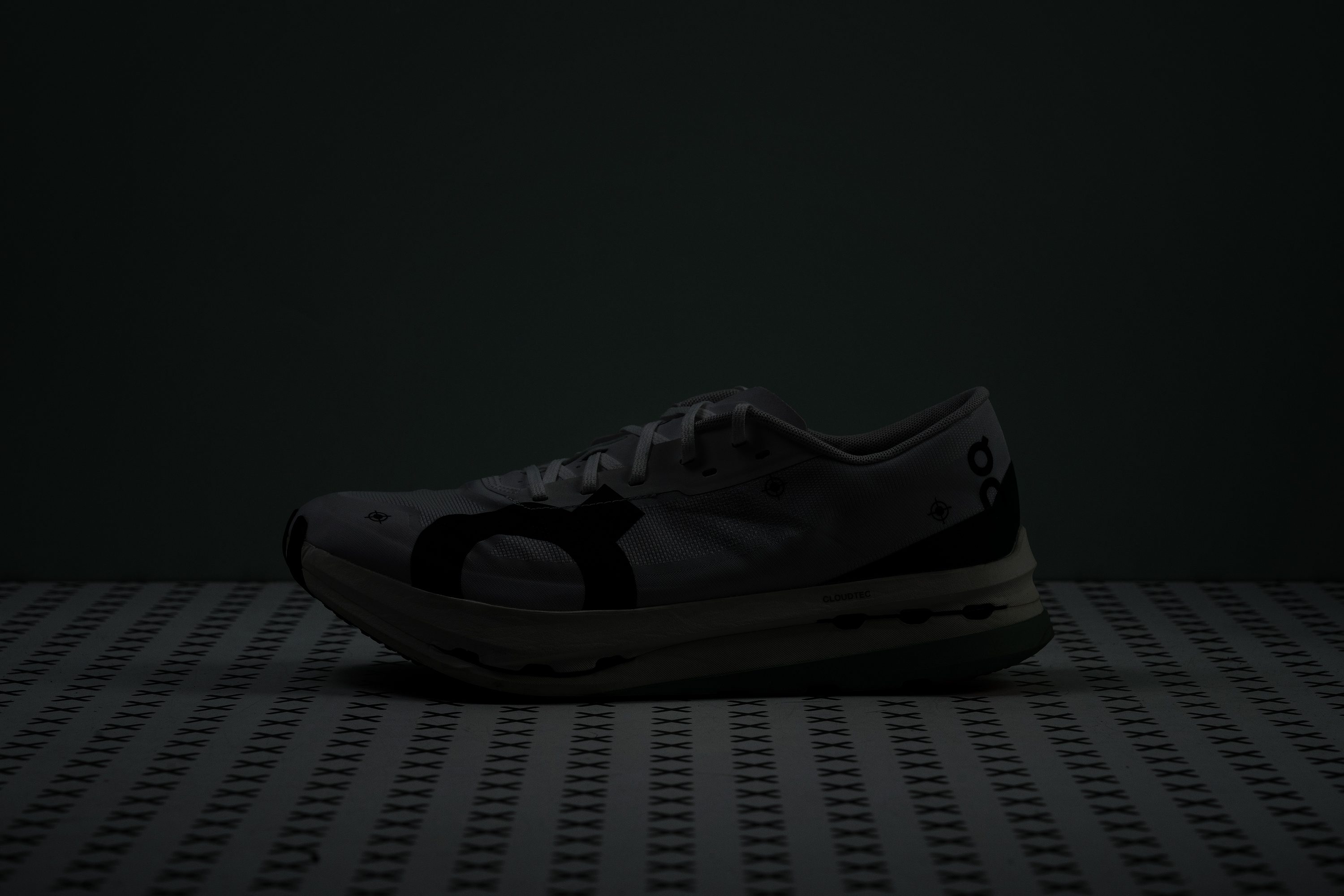
| Cloudboom Echo 3 | No |
Tongue padding
The tongue is a surprisingly plush 2.3 mm thick.
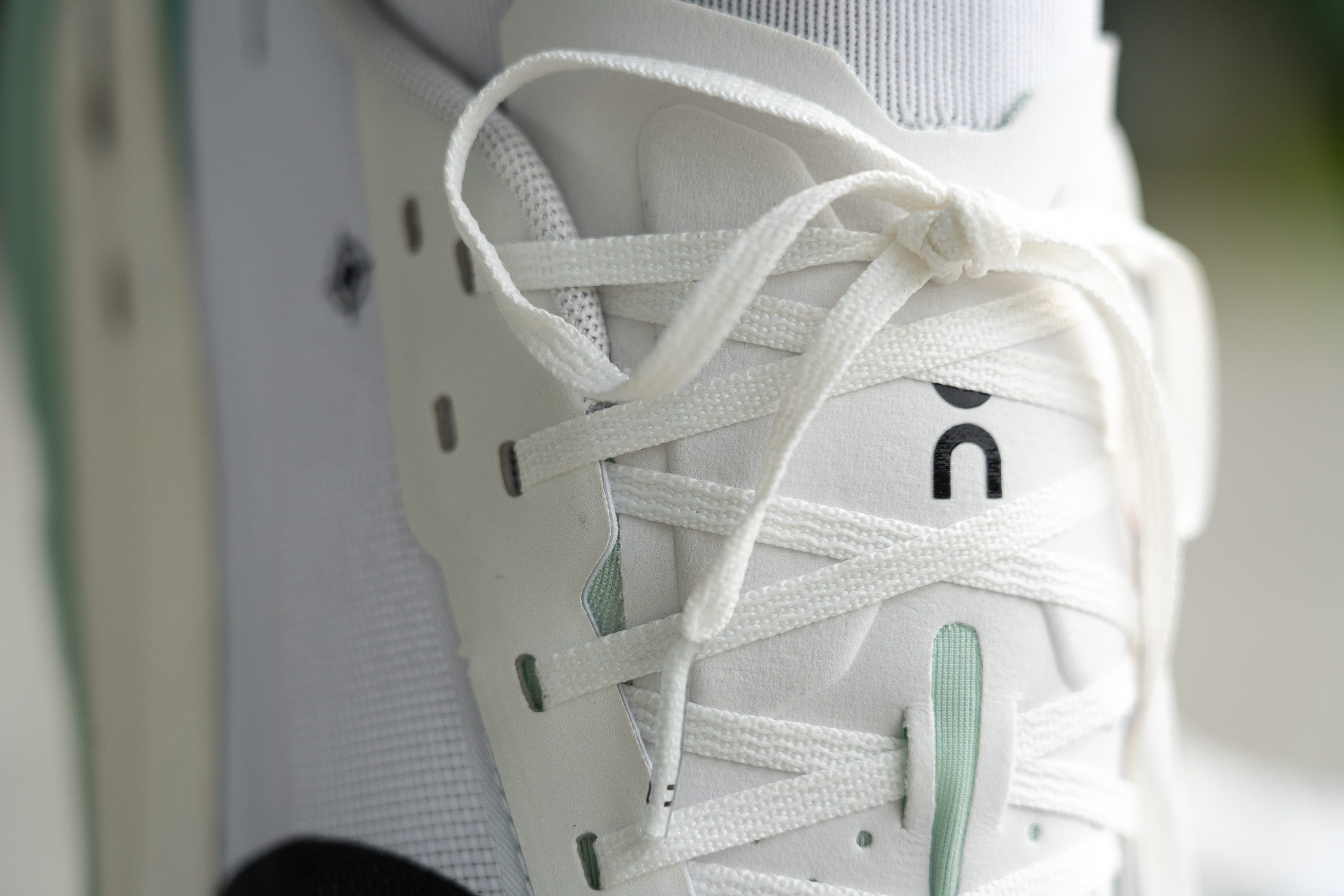
Though this might seem low compared to most running shoes, it's actually quite generous when stacked up against its direct competitors:
- ASICS Metaspeed Edge+: 0.9 mm
- Hoka Rocket X 2: 1.9 mm
- Saucony Endorphin Elite: 0.9 mm
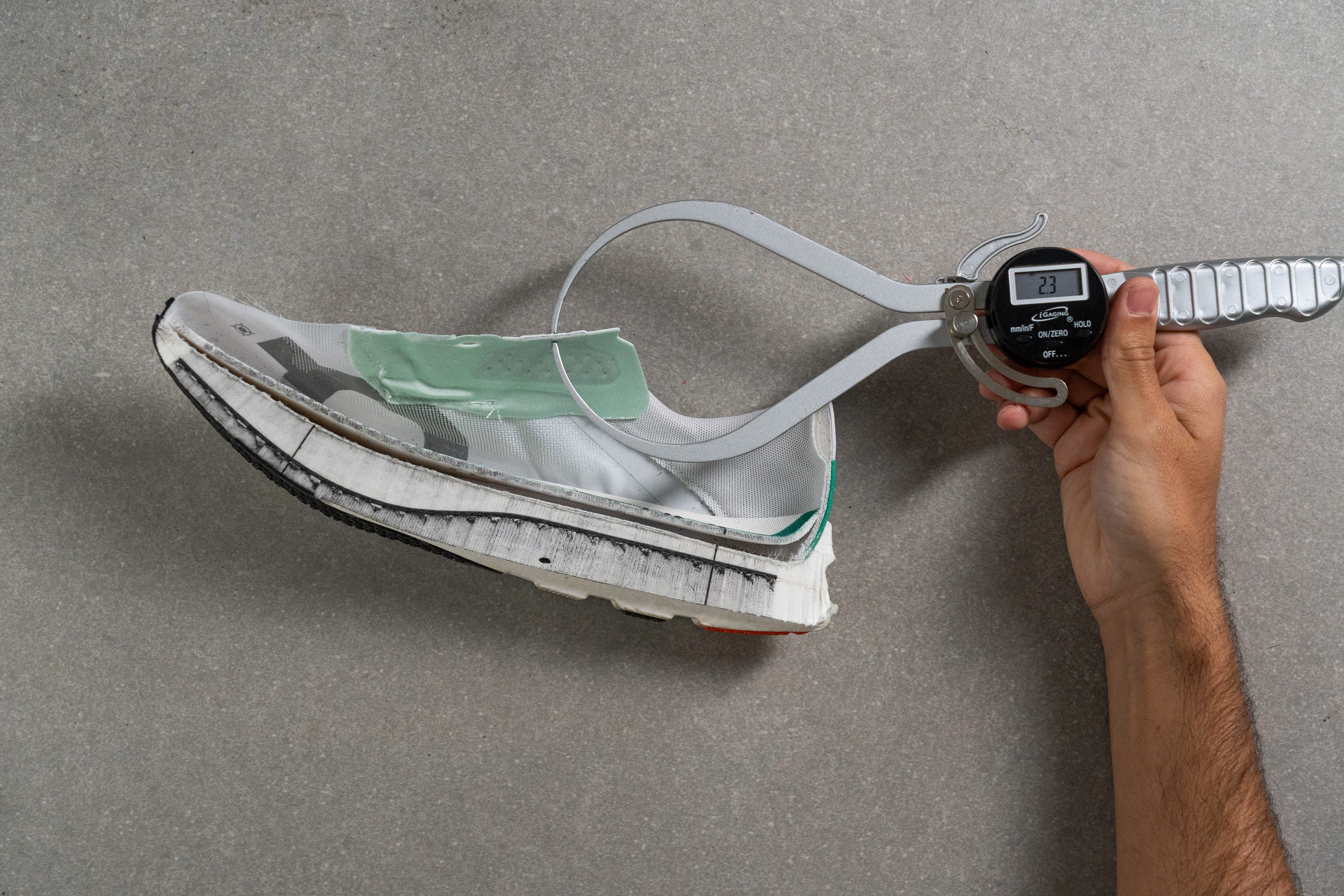
| Cloudboom Echo 3 | 2.3 mm |
| Average | 5.7 mm |
Tongue: gusset type
The tongue is semi-gusseted, something we truly appreciate and one that not all racing shoes provide. This feature helps prevent unwanted movement, especially crucial when you're running at top speed.
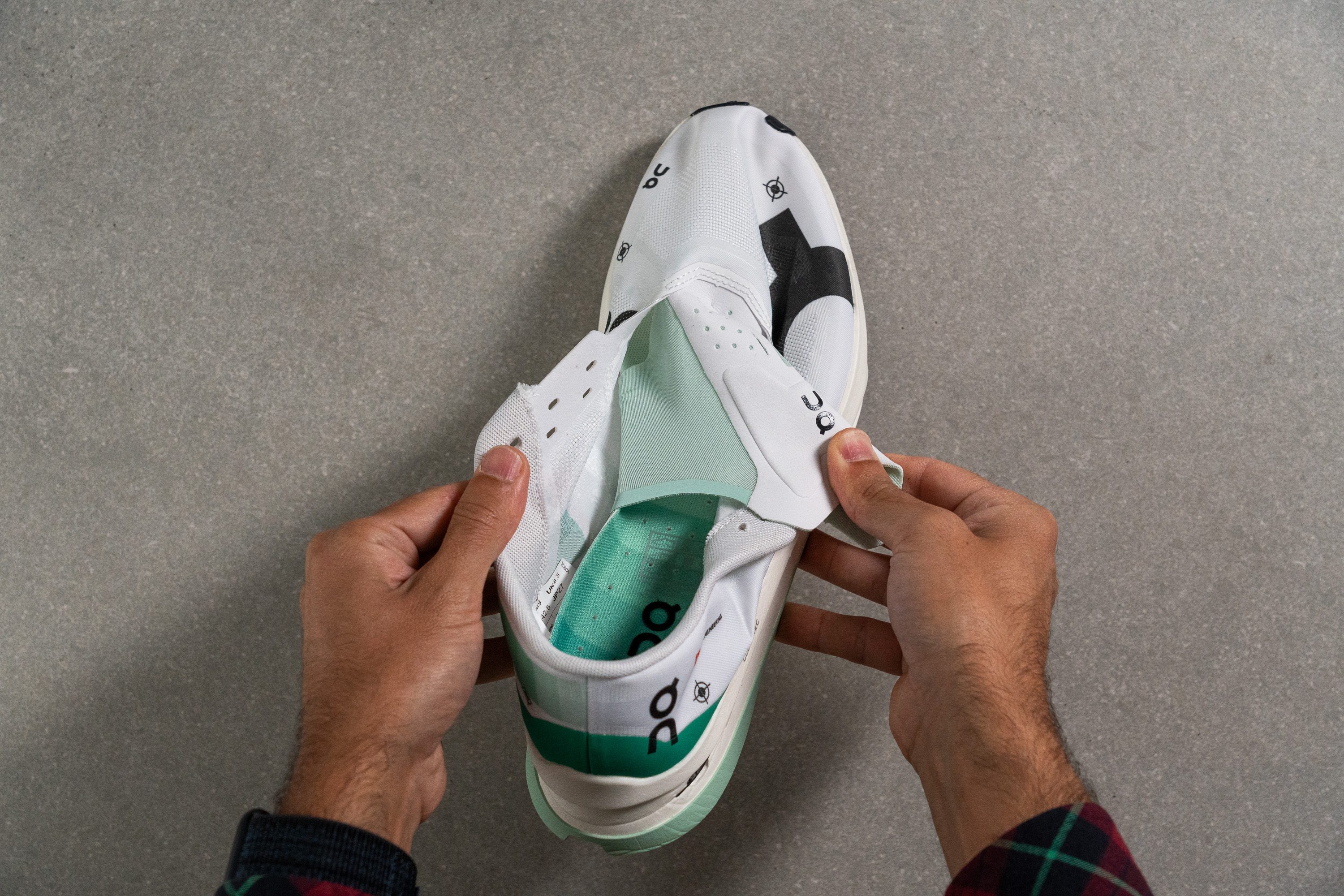
| Cloudboom Echo 3 | One side (semi) |
Heel tab
On chose to skip the heel tab on the Cloudboom Echo 3, a smart move aimed at shaving off extra weight wherever possible!
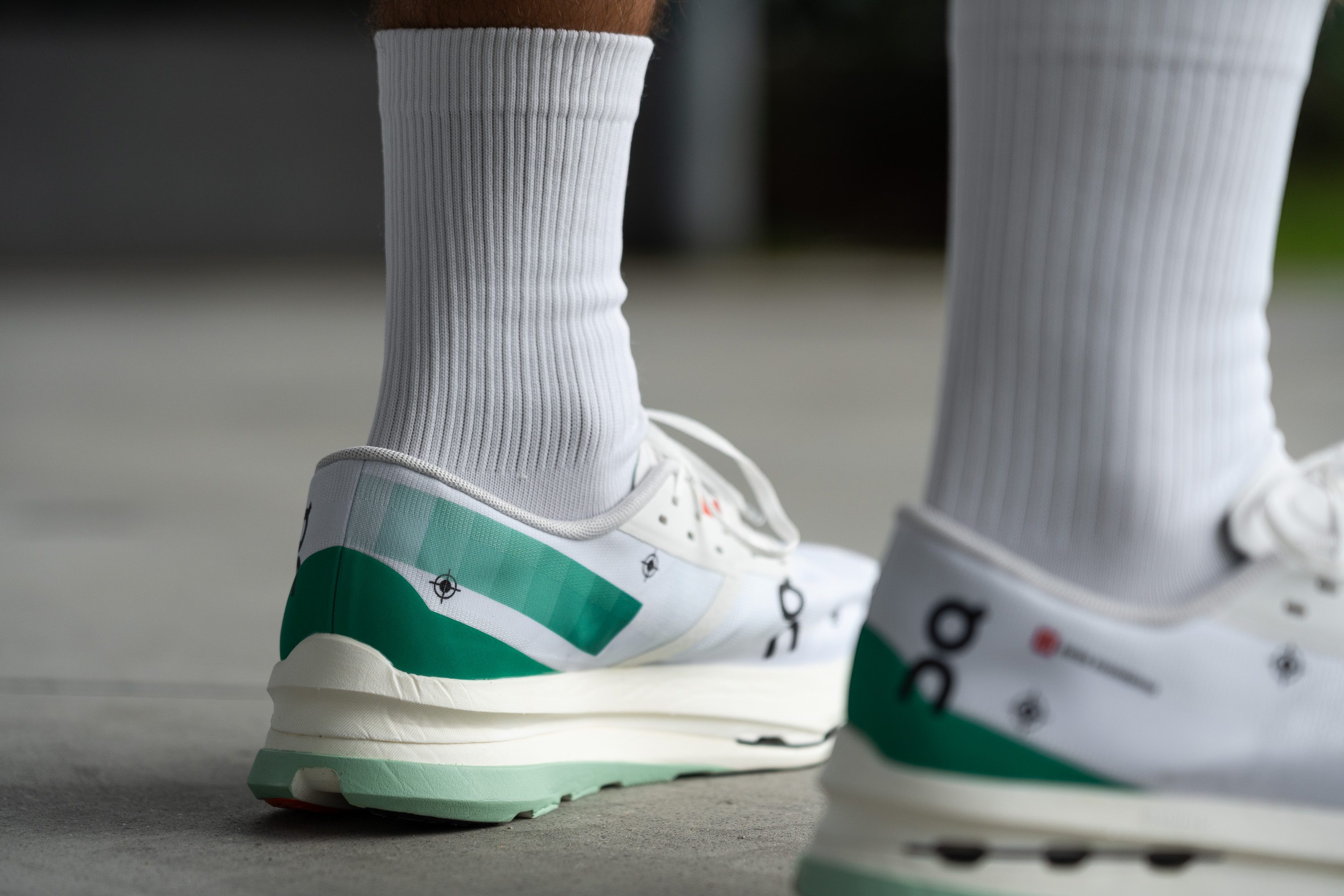
| Cloudboom Echo 3 | None |

